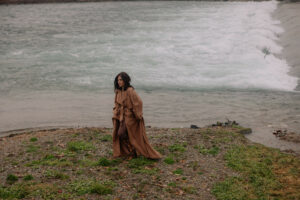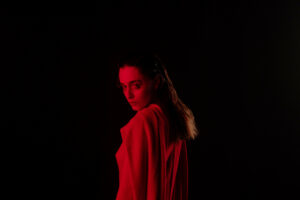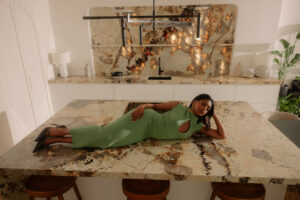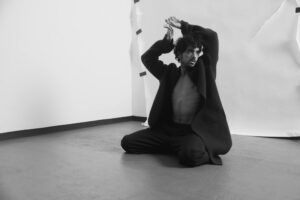Few characters in science fiction are as hypnotic as Demerzel, the loyal yet mysterious android at the heart of Apple TV+’s “Foundation”. She is servant and manipulator, protector and executioner, machine and, perhaps, something more. And bringing her to life is Laura Birn, whose performance has quickly become one of the show’s most compelling forces.
What makes Laura fascinating is the way she embodies not just the contradictions of an immortal android, but the very questions “Foundation” dares to ask: about memory, freedom, and what it really means to be human. In her words, Demerzel becomes less a character than a mirror – reflecting our own doubts, desires, and the fragile balance between control and choice.
“Foundation” is based on one of the most influential sci-fi sagas ever written. How much did you immerse yourself in Asimov’s work before stepping into the role?
I read the books because I wanted to know, because the world wasn’t familiar with me. I wasn’t watching sci-fi before a lot, so this was all kind of new to me. I have a young son who has kind of entered the world of sci-fi at the same time as me, so we are exploring all these worlds together. Obviously, there are differences between the books and the show, but still, it’s important to understand what we lean on.
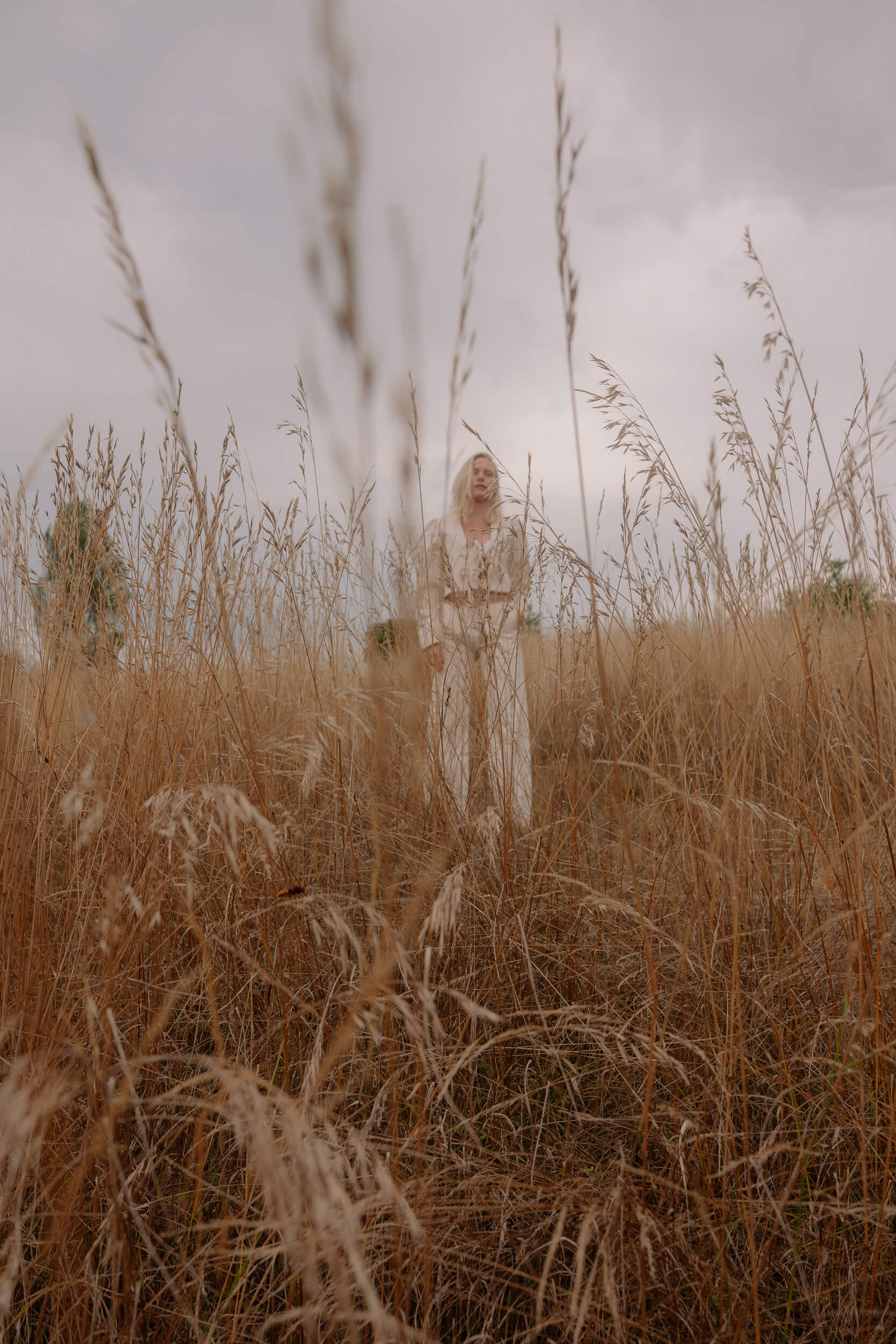
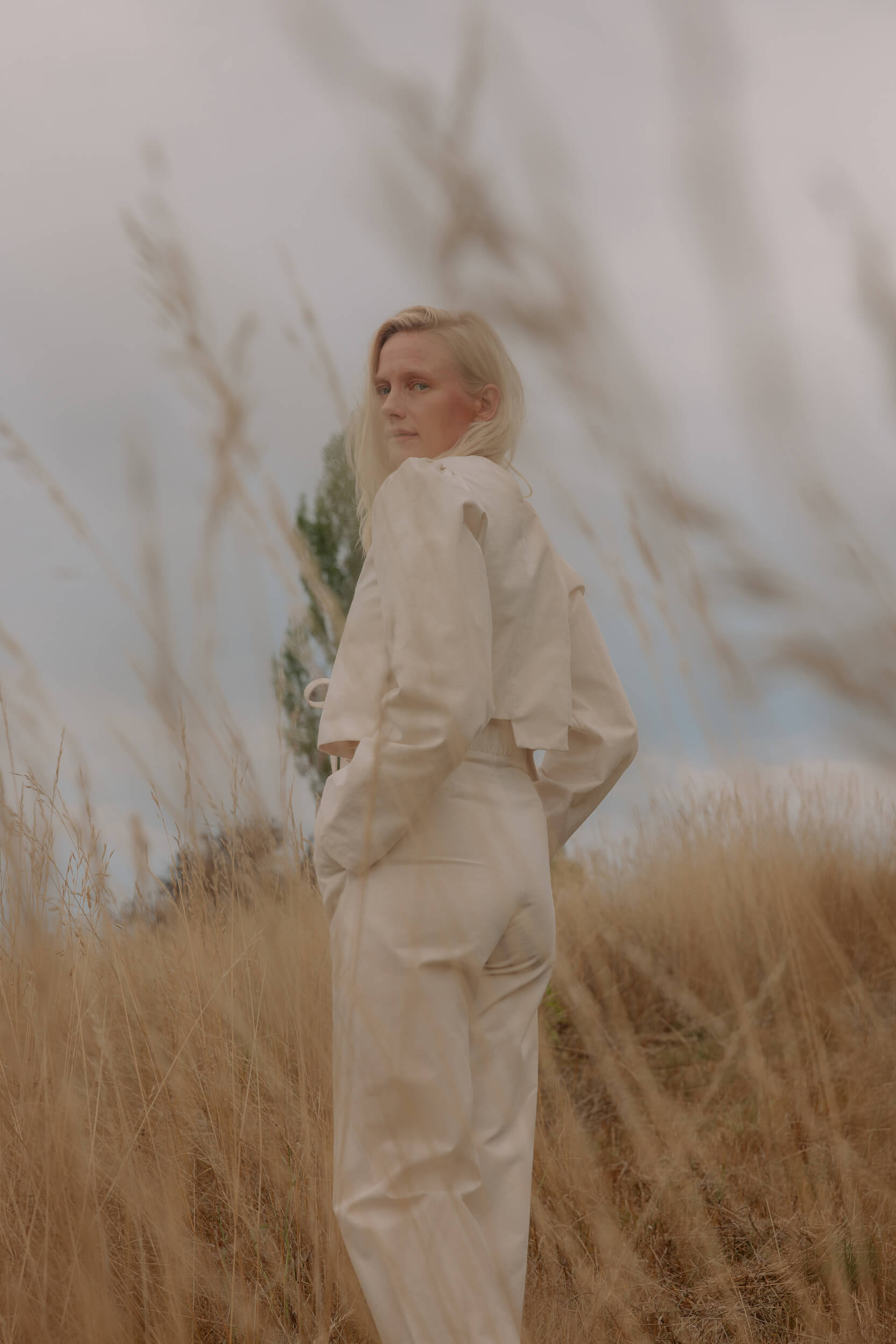
Your character, Demerzel, is such a complex, fascinating figure — she’s an informer, but also a manipulator; she’s a mother, a lover, a murderer. She’s full of mystery. How did you approach embodying someone with so many layers?
I think she’s one of the most fascinating characters, and what I love about her is that it is impossible to say if she’s a “good guy” or a “bad guy”, if she’s a hero or if she’s a villain. She’s kind of everything. Like you said, she’s capable of horrors and cruelty beyond imagination, and at the same time, she’s the most loyal and loving. We understand that she’s capable of understanding love or feeling love, but is she ever free to explore love or is she always programmed? Obviously, because she’s a machine, she’s being programmed, but what’s with the programming? Is there something that’s in her that, even though she’s programmed, is kind of purely her? She’s lived for 25.000 years, she remembers everything, she’s built to remember. So how much has that affected her values or the part of her mind which is not controlled by the programming? She’s seen everything about humanity, the beauty of being a human being and the low sides of that. So how much does it affect her?
I think it’s so fascinating because she’s a machine, but of course her story makes us start to think about ourselves – are we ever truly free? The truth is I was programmed by my parents, by the society, by the Finnish culture, by my upbringing, by the schools that I went to, the teachers that I had, the people that I had close to me. So even though I think I’m free to think whatever I want, it’s been 44 years of a lot of programming and information.
So, the questions are: is there a free place within us? Is there a soul or is there a pure, authentic me somewhere? Or are we all kind of struggling with similar questions to the one she poses herself? Are we ever free to choose?
You know, the writing is so nuanced, so embodying Demerzel is like a never-ending exploration of myself, of humanity and the AI side of it all, the mechanical side of it all. A journey which I love because every season it gets more complex and more interesting, so it doesn’t get boring to play the same character for years.
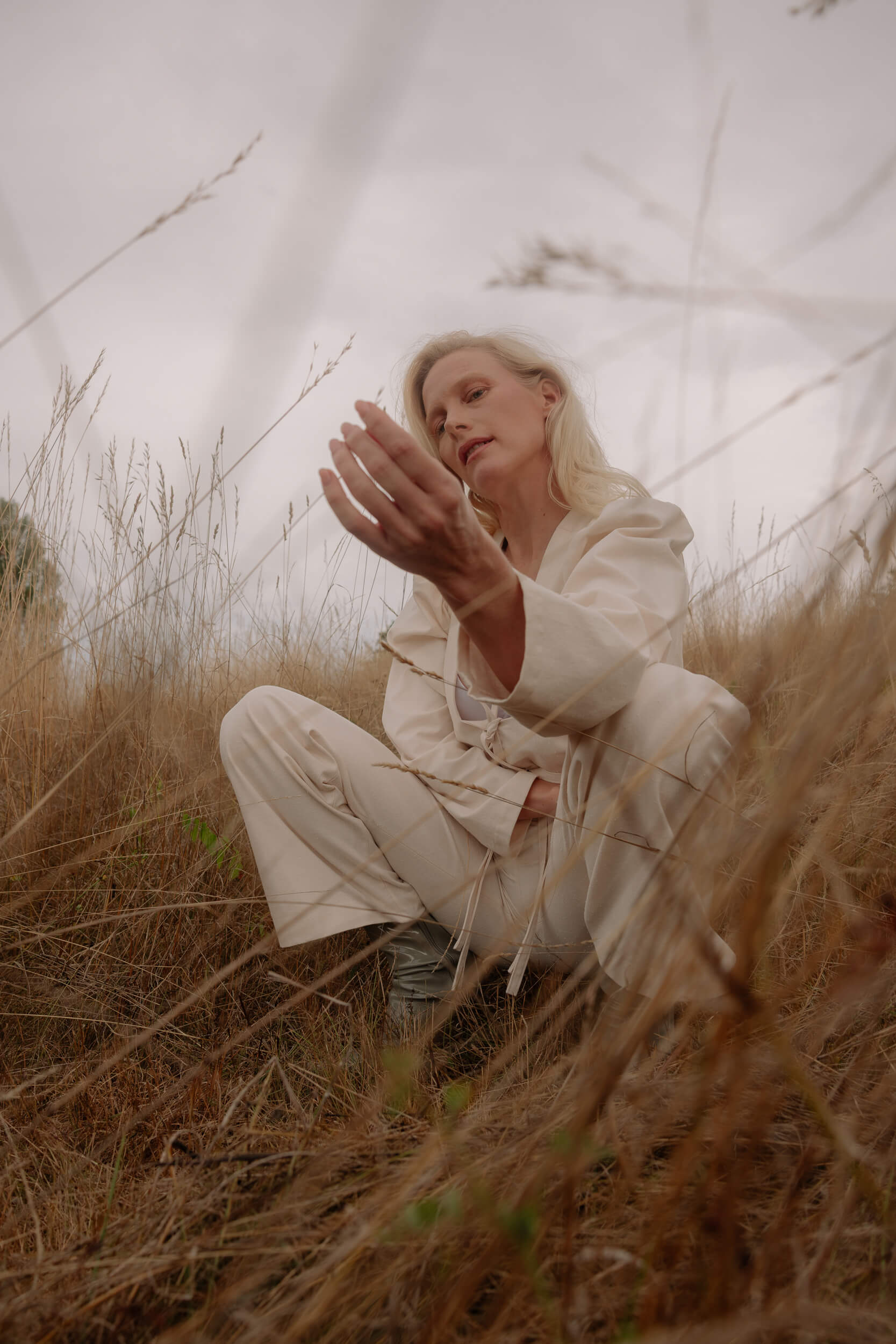
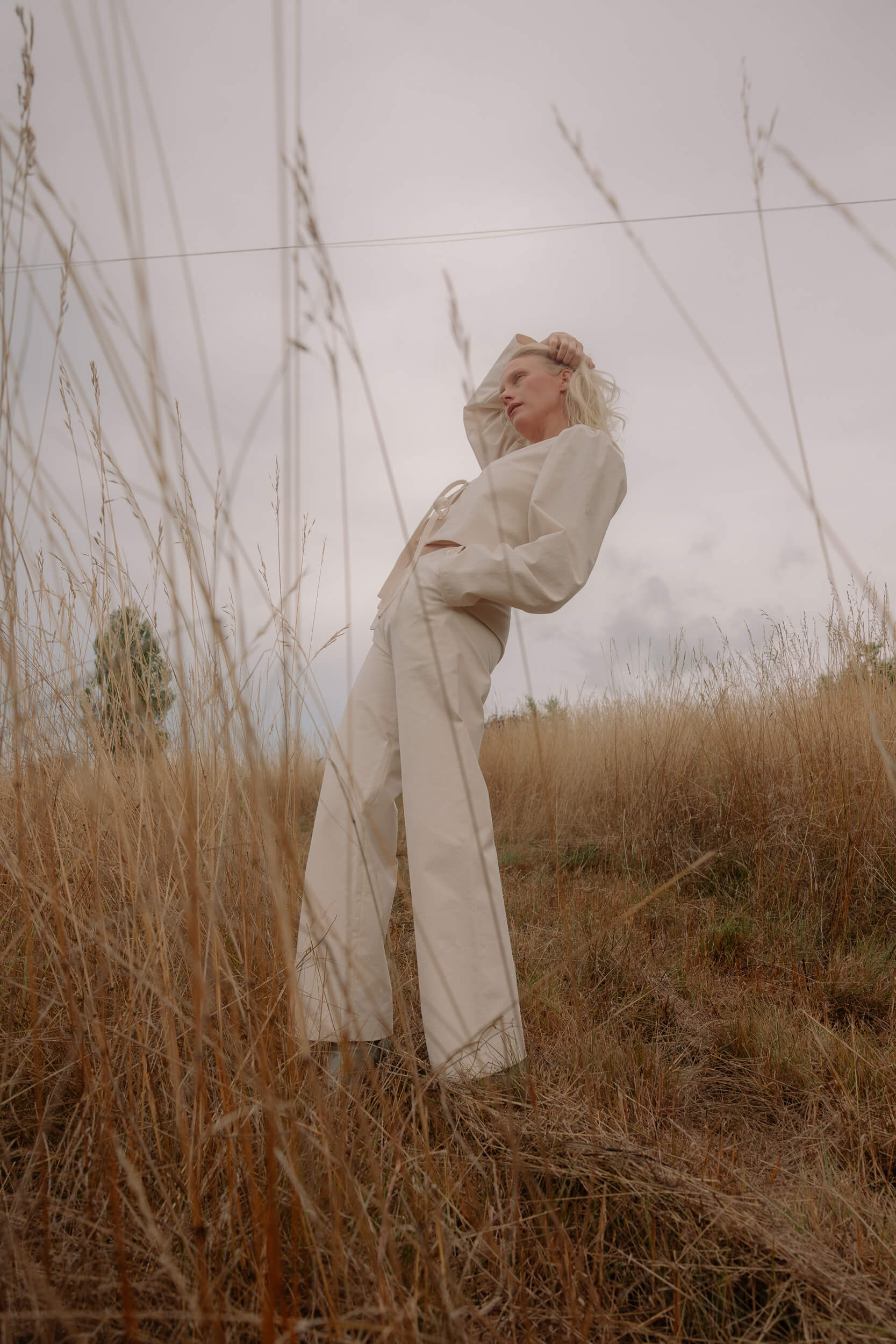
“I think it’s so fascinating because she’s a machine, but of course her story makes us start to think about ourselves – are we ever truly free?”
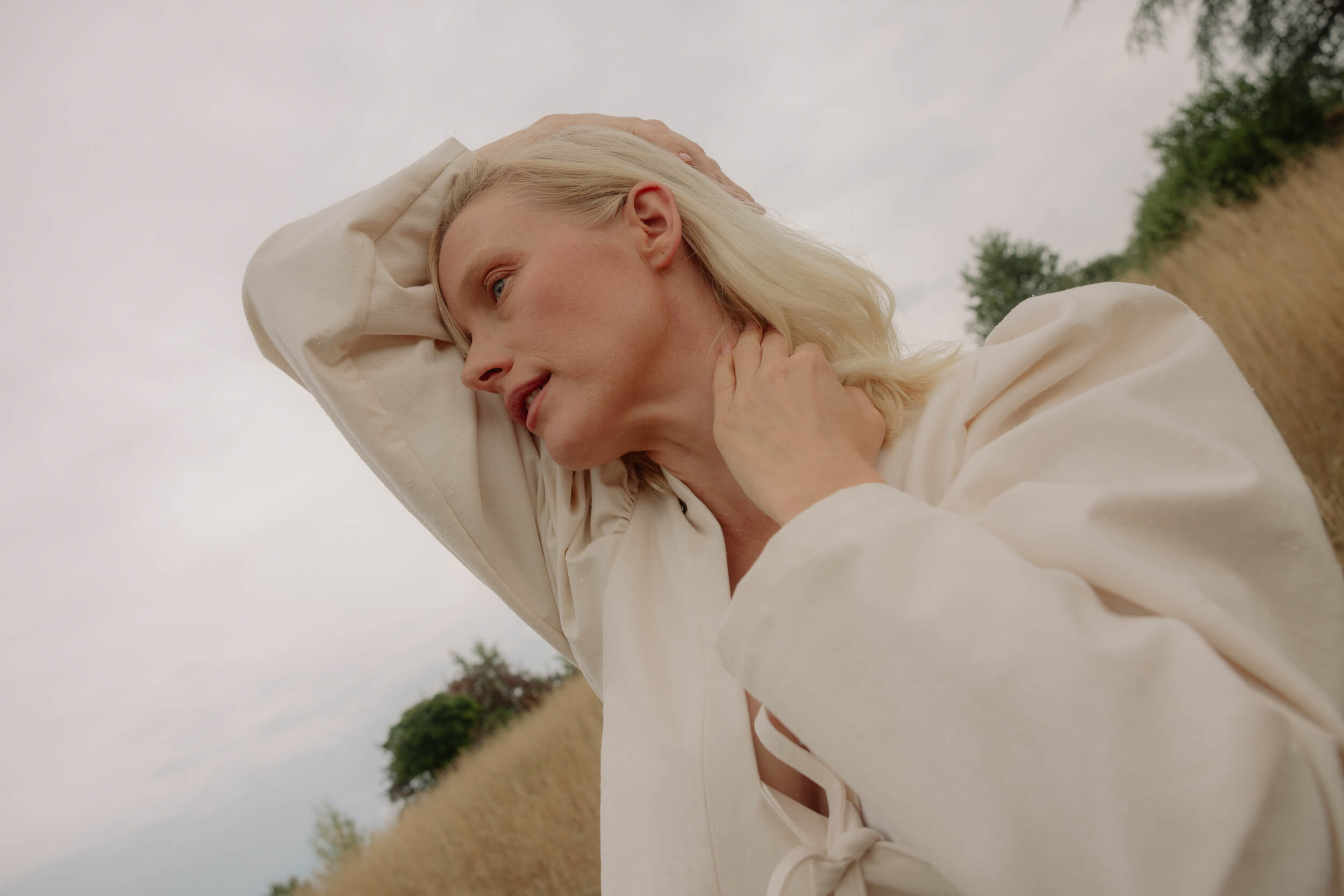
What was the most challenging part or aspect of portraying an android who often seems more human than the humans around her?
I guess the key is finding a balance between the mechanical side of her and the more human side, the inner life that she has, that she’s had for such a long life, thousands of years.
In season two, there’s this backstory of her where we get to see how she became part of the Empire. Shooting that sequence in the dungeon where she’s been sliced up was really special and something I’ve never done before. And because she’s sliced in places, the only thing I could use was my voice and my eyes, you know, so the challenge was trying to find the power or the sensitivity in her without being able to move an inch of my body, and then building from there when they put her whole together and she starts to control her body, use her power. Still, she knows she’s the victim, she’s still a prisoner, it’s so subtle, and everything happens in such small details, I love that. Demerzel is like an ultimate fighter, a killer machine, but at the same time, she’s so delicate. There’s so much life inside of her, but what she shows outside is so controlled. It’s a dance, and I love that kind of contrast. It’s a challenge that I haven’t gotten bored of.
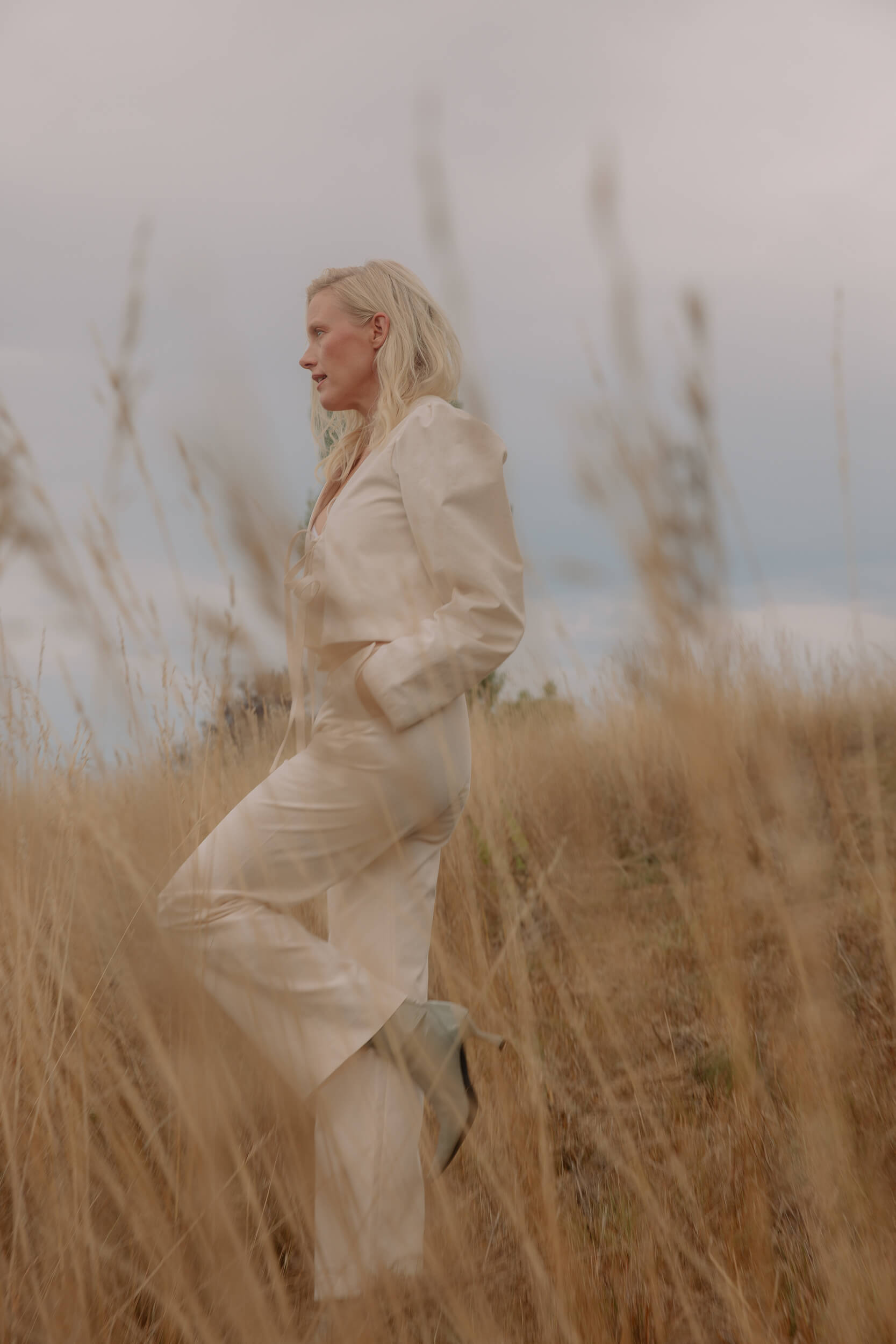
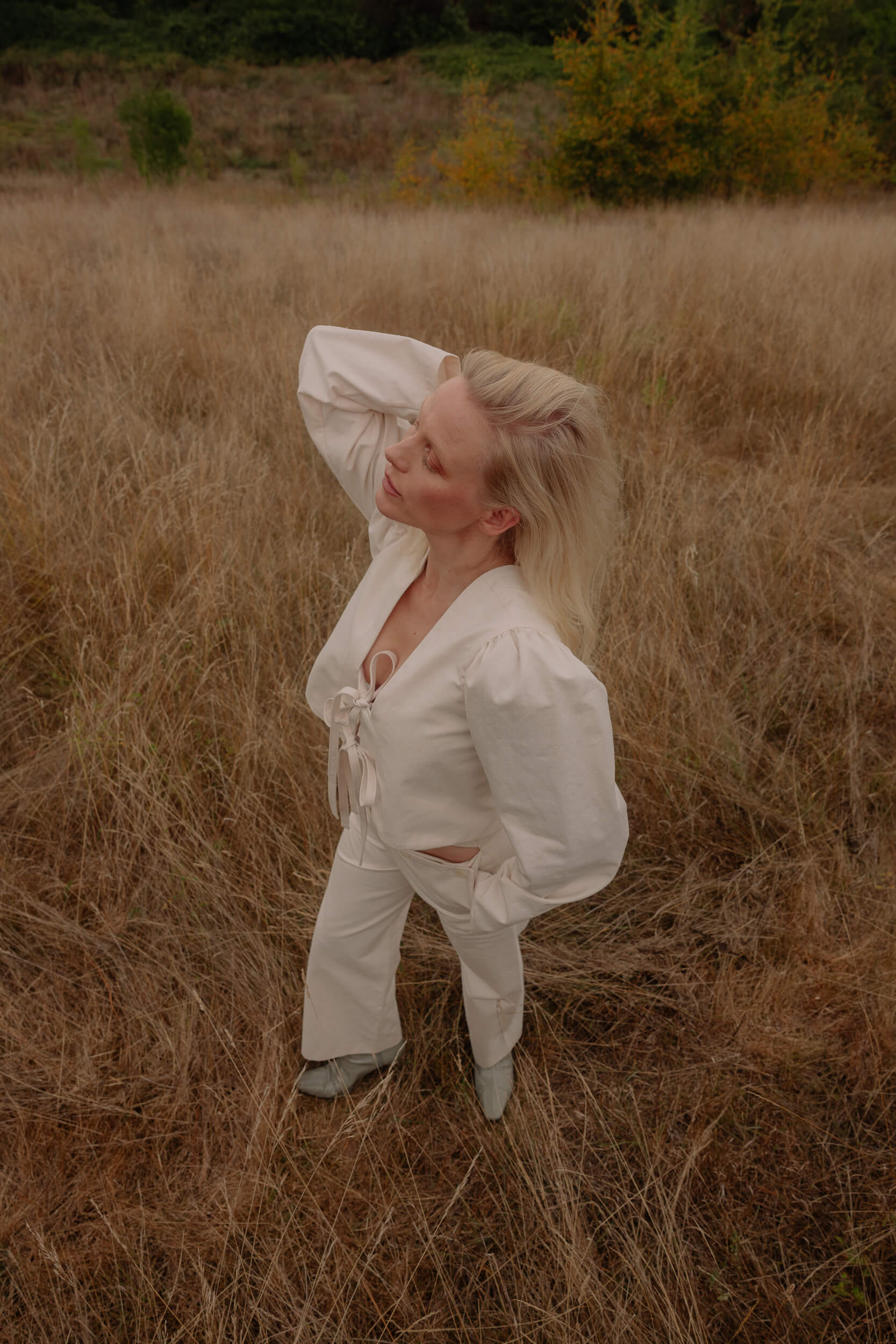
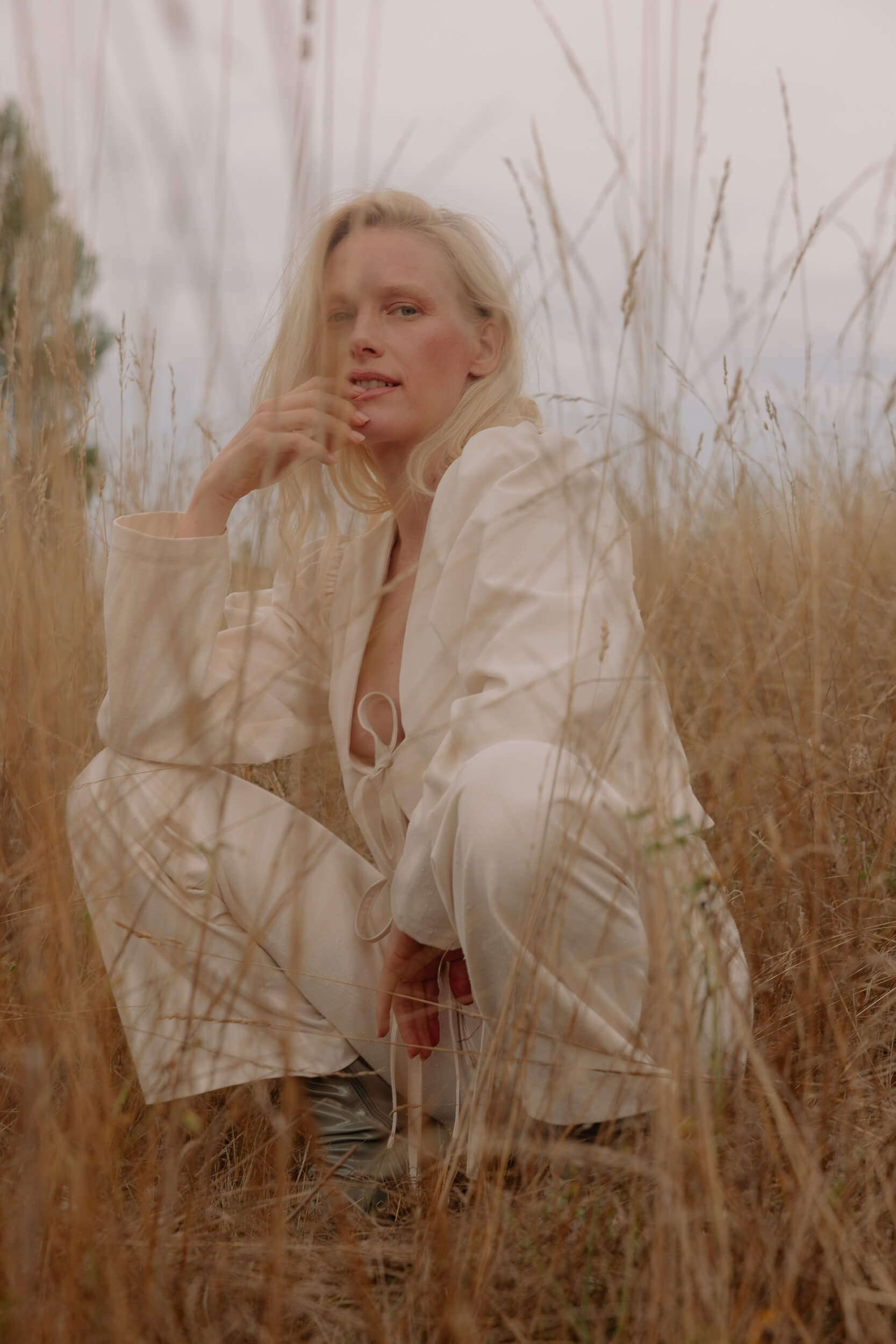
I love that fight between the mechanical and human side of her. Also, because in some scenes, she cries, and you think, “Oh my God, can an android cry?”. It’s a very interesting topic.
Well, I think if someone would have witnessed everything, what’s going on in the world at the moment and in the history and how the history keeps repeating itself, how we as human beings end up doing the same mistakes or witnessing the same cruelty or not being able to feel empathy towards people who are different or whatever, I think if somebody had to witness that for 25.000 years, it would kind of crunch their soul. So, I’m not surprised she cries sometimes.
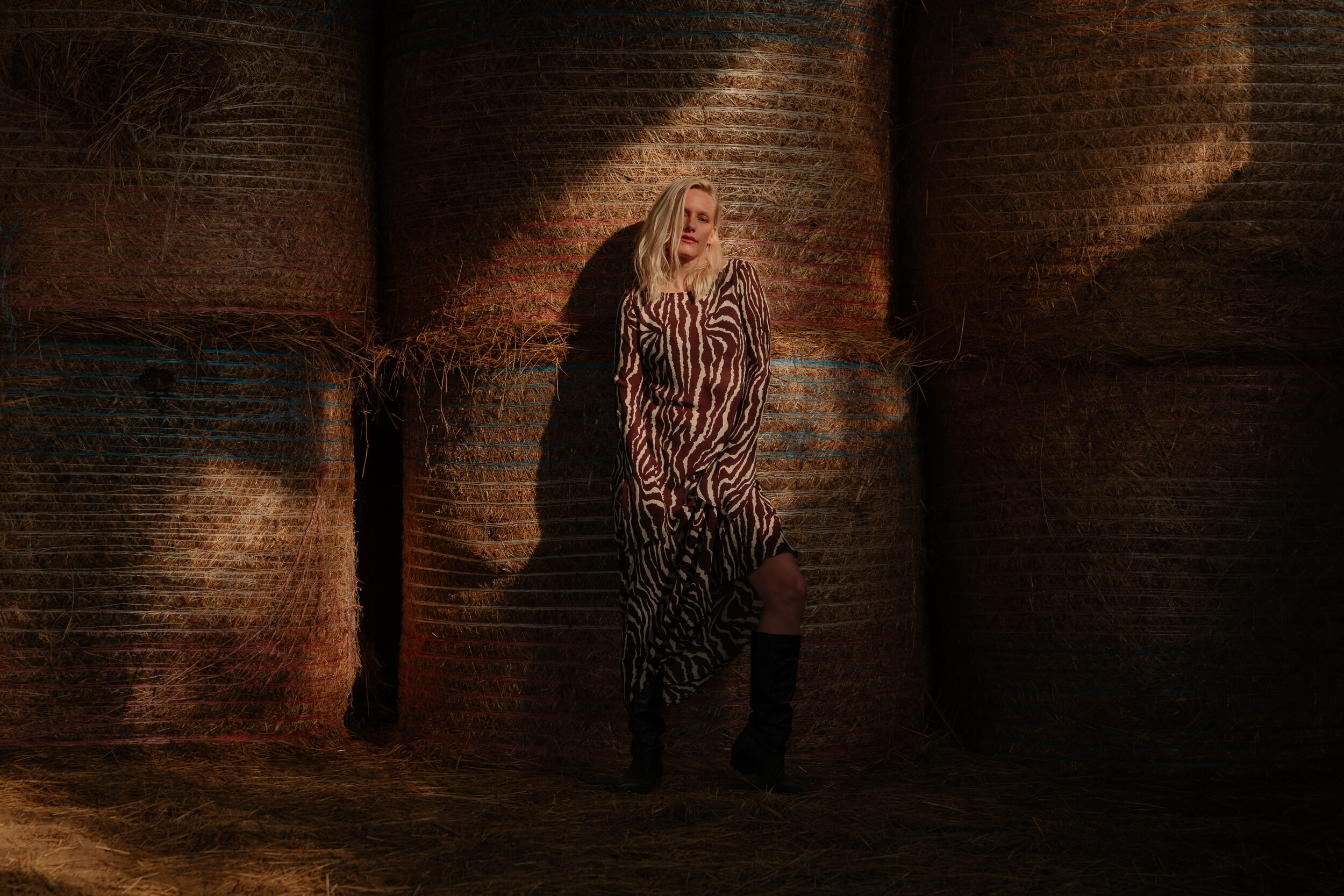
Yeah, of course. Generally speaking, the show deals with very strong themes like, for example, destiny versus free will. How does your character fit into that tension in your view?
Well, she’s in the core of those questions. Does she have a free will? That’s the main one. And we know that she doesn’t in some terms because she’s programmed to serve the Empire. But in this latest season, things get very interesting because she has the hold of the Prime Radian, which is a tool that can somehow foresee the future, and she sees something that might mean the end of the dynasty or even the extinction of the human species. So, what would it mean to her if the dynasty falls? That would mean she would be free maybe because she’s not under that control, that programming anymore, but at the same time, she’s programmed to fight against that. It’s probably this pull that drives her into this existential crisis. Of course, she wonders, “Can I even wish for freedom? Do I want it because I want to do my own programming?”.
Another question is, “Can one person’s actions affect the society, or maybe even the whole humanity?”. You know, Demerzel has a lot of power in the galaxy, her decisions do make a difference. And this also applies to human beings – do we believe that one person’s actions can make a difference? Or is it like, “Well, I can’t do anything because it won’t make any difference”. You know, the world is a large place with so many people living in it, so you can feel very tiny and you can think that your actions can’t really make a difference except for your close family or friends.
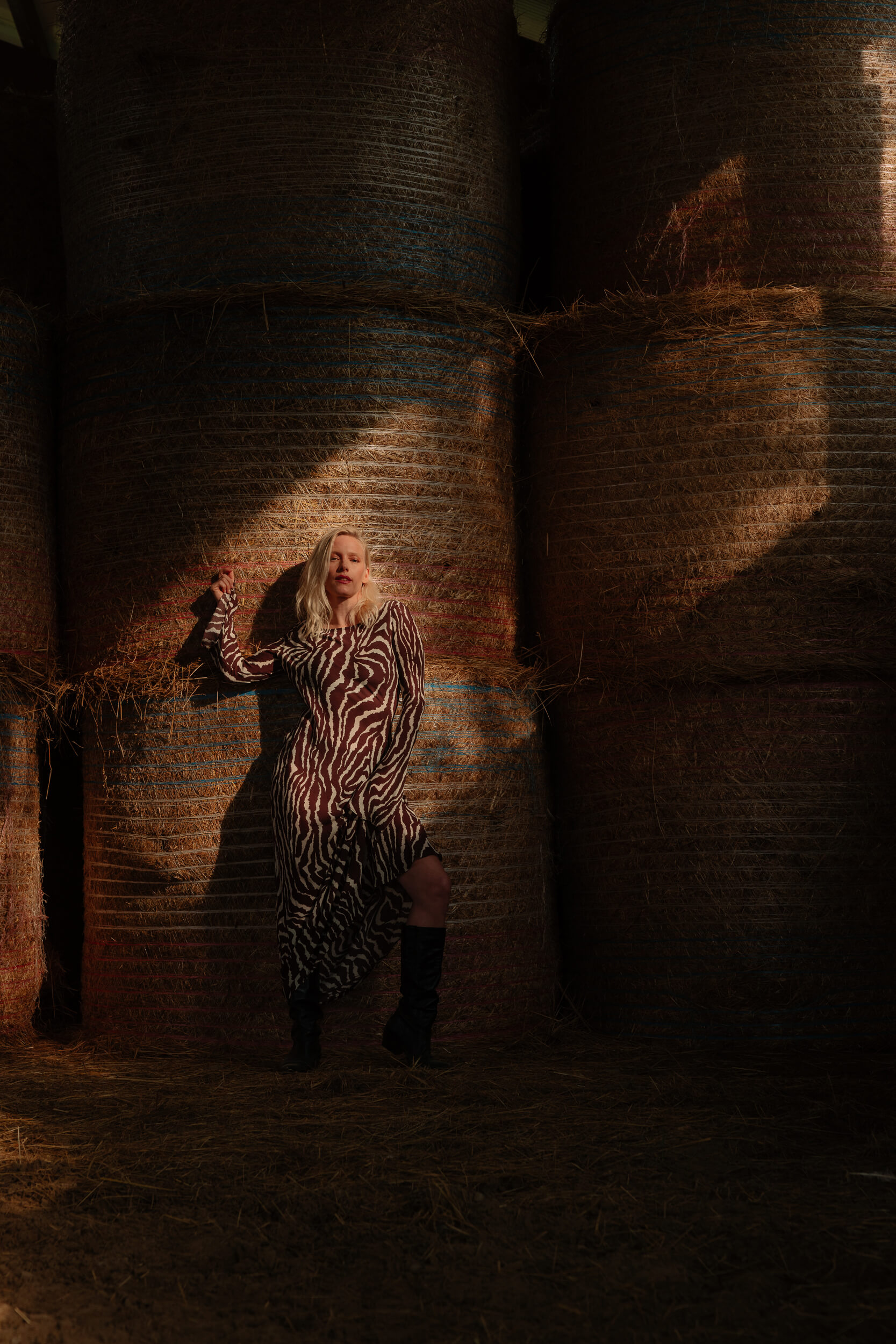
Were there moments while working on “Foundation” that made you personally reflect on questions like morality, identity, or power?
Yeah, I think season three has been the one where I’ve felt closest to those questions myself. It’s really about asking: how do we become who we are, and how much control do we actually have over our opinions? Because so much of what we carry comes from our families. At some point in our lives, we take a step back and think: this is truly what I believe in, these are my values. And those values might be the same as our parents’, or completely different. But I think each of us needs that moment of clarity when we can say: this is what matters to me, this is how I believe I should behave towards other people. Because otherwise it’s easy to just go along with what we’ve been told without really questioning it. For me, this whole season has been about reflecting on how we become who we are, and what responsibility we carry for our opinions, our values, our actions. And then, of course, there’s the chaos of the world, how messy everything is, and how much fear there is right now. It’s easy to draw parallels with the present.
To hear people in power say things that, 10 or 20 years ago, I never would have imagined could be said out loud about other human beings – and yet now it’s somehow normalized. That really makes you wonder where we’re headed.
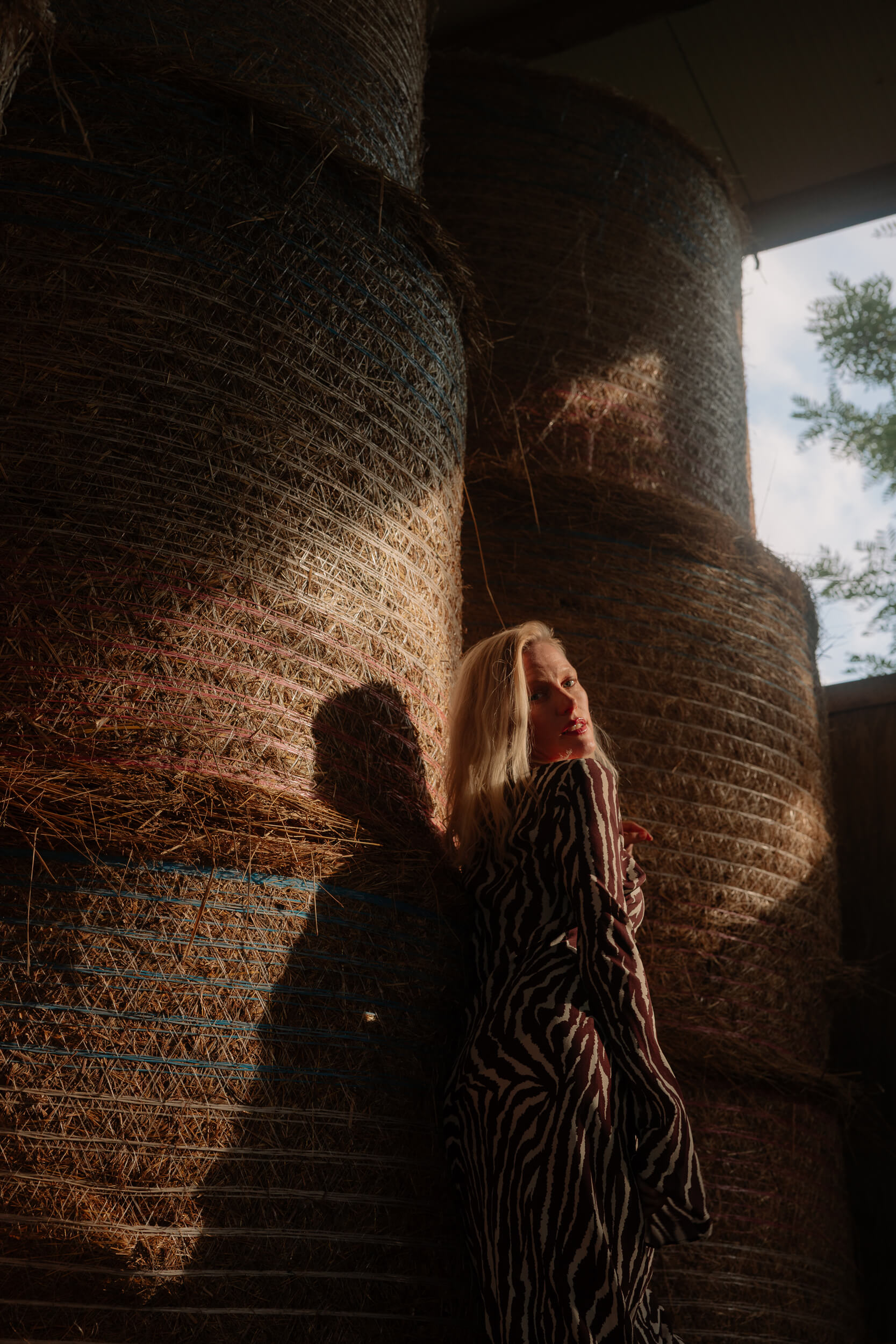
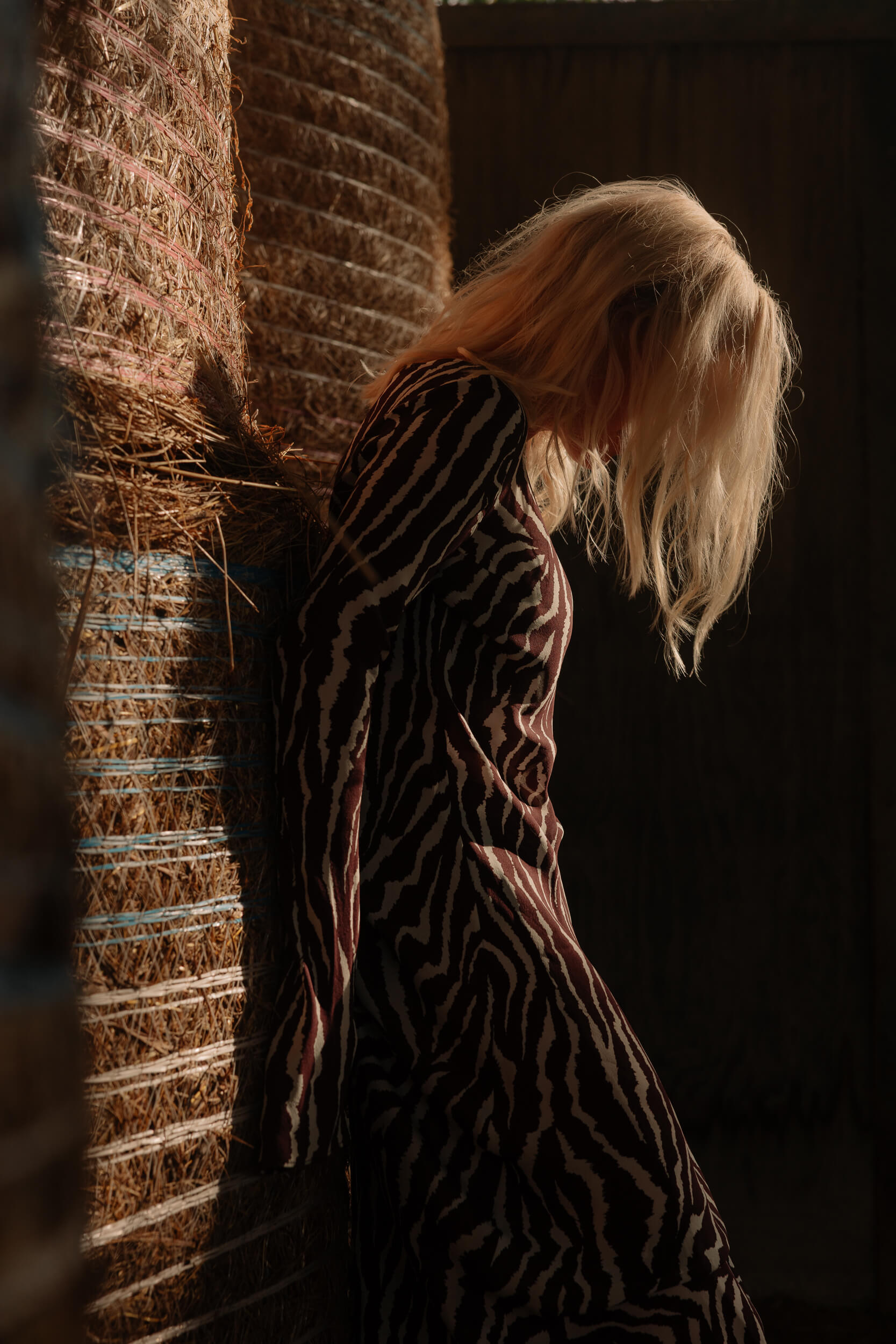
“I think each of us needs that moment of clarity when we can say: this is what matters to me, this is how I believe I should behave towards other people.”
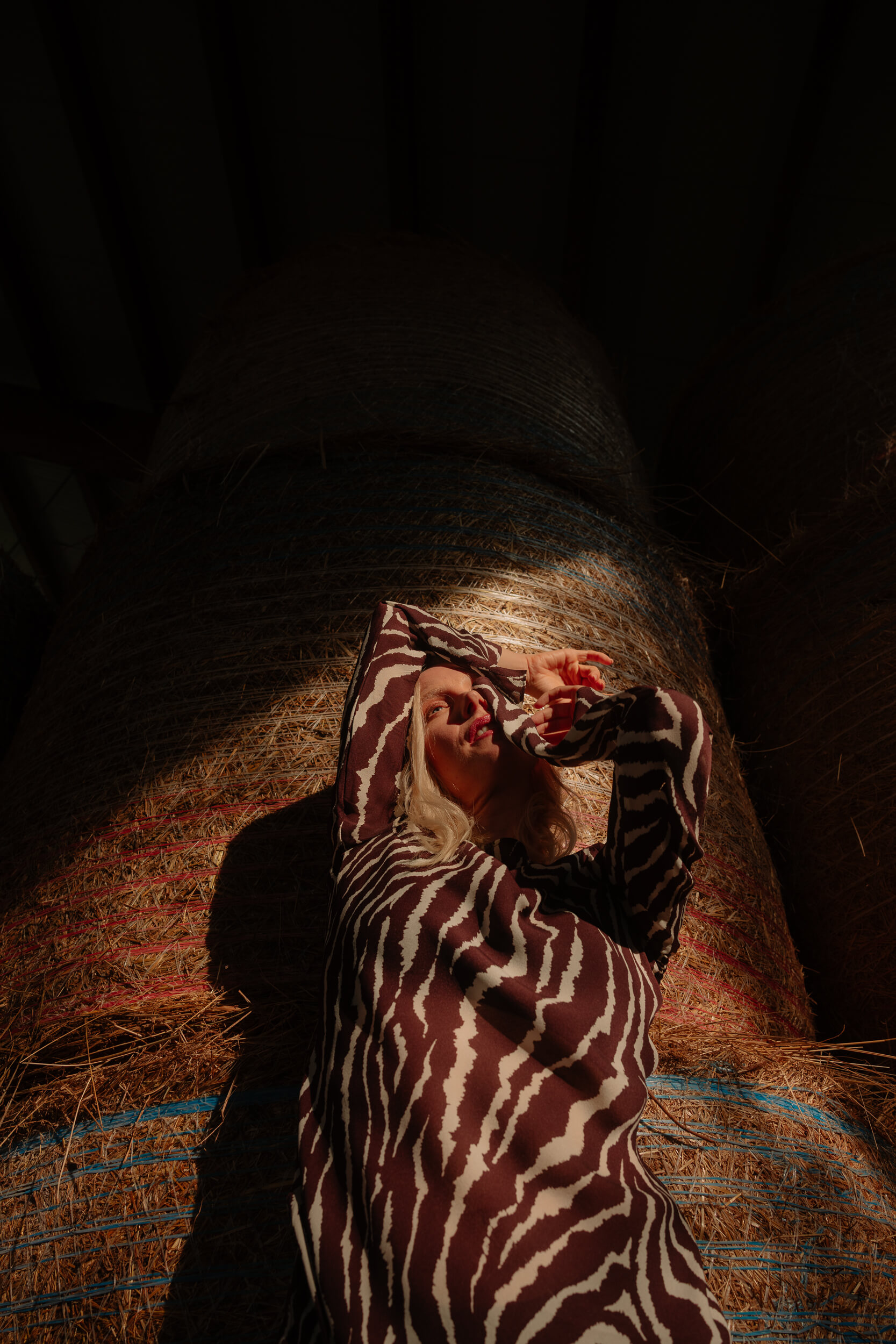
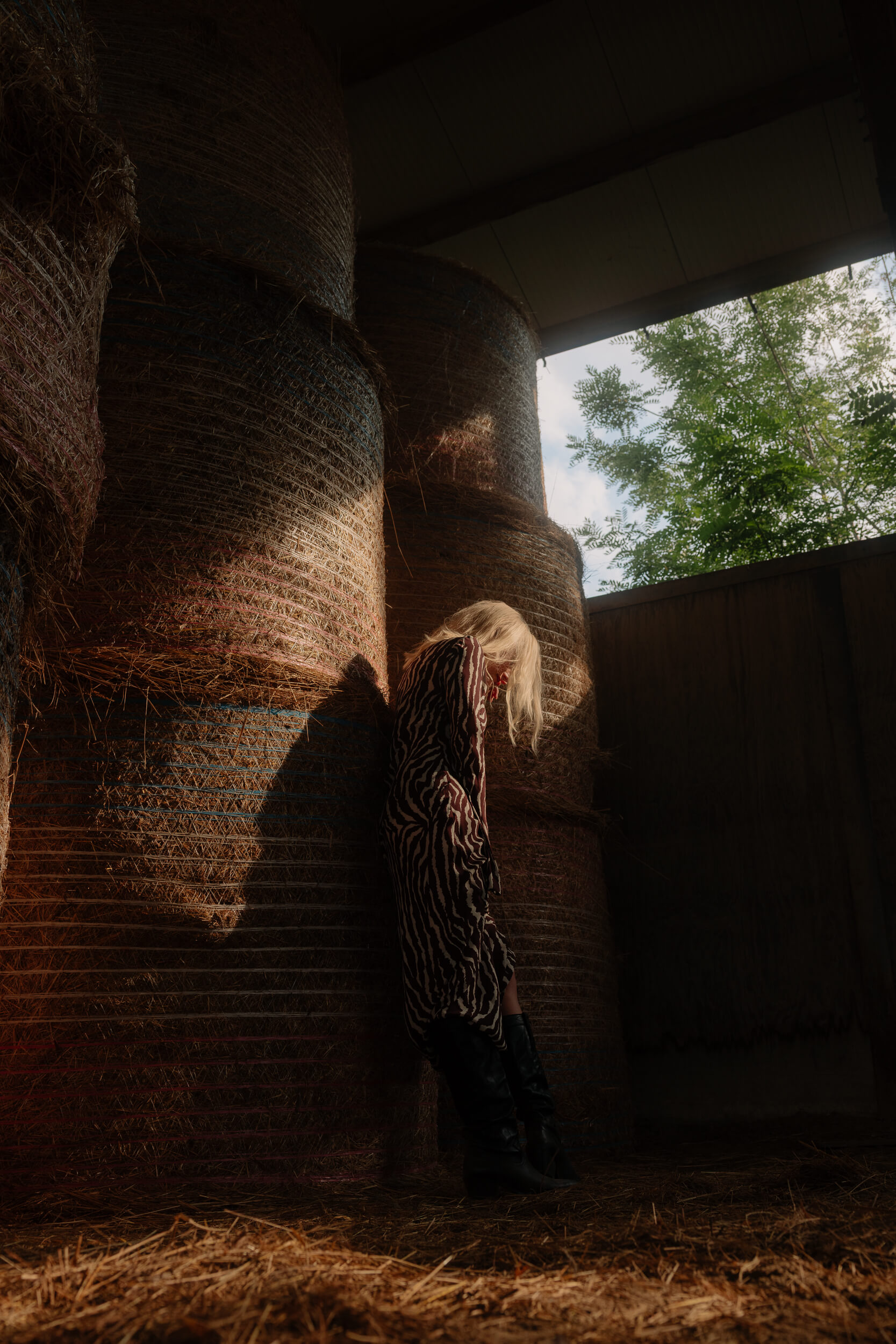
And how would you describe the atmosphere on set, given the mix of science fiction spectacle and deeply emotional storytelling?
Even though the themes are heavy and profound, the process of making the show is fun. That’s something I’ve noticed often – when you’re working on dark or deep material, there’s a lot of laughter, a lot of levity in between. Of course, when you step into a scene you go deep, but outside of that, it’s joyful. And honestly, I feel so blessed to have my Cleons – my Emperors. I love them all. We’ve spent so many years together now, gone through COVID, lived in bubbles in Ireland and the Canary Islands. I’ve spent more time with them than with some of my closest friends in the past few years. They’re fun, intelligent, ambitious, curious about life – really the best colleagues you could wish for. And they all have this sparkle in their eyes, this awareness that, “Yes, we’re ruling the galaxy”, but also, “We’re in space!”. I love how Lee [Pace] says, “I’m the emperor of the galaxy”, and makes it sound so playful, even as we take it seriously. You need that sense of fun when you’re working with such dark themes. And with Lee in particular, I love how he always brings danger to his character – one of the most violent figures in the galaxy – but also something deeply human, even humorous. He makes his characters fun, even when they seem impossible. Working with all of them has been pure joy.
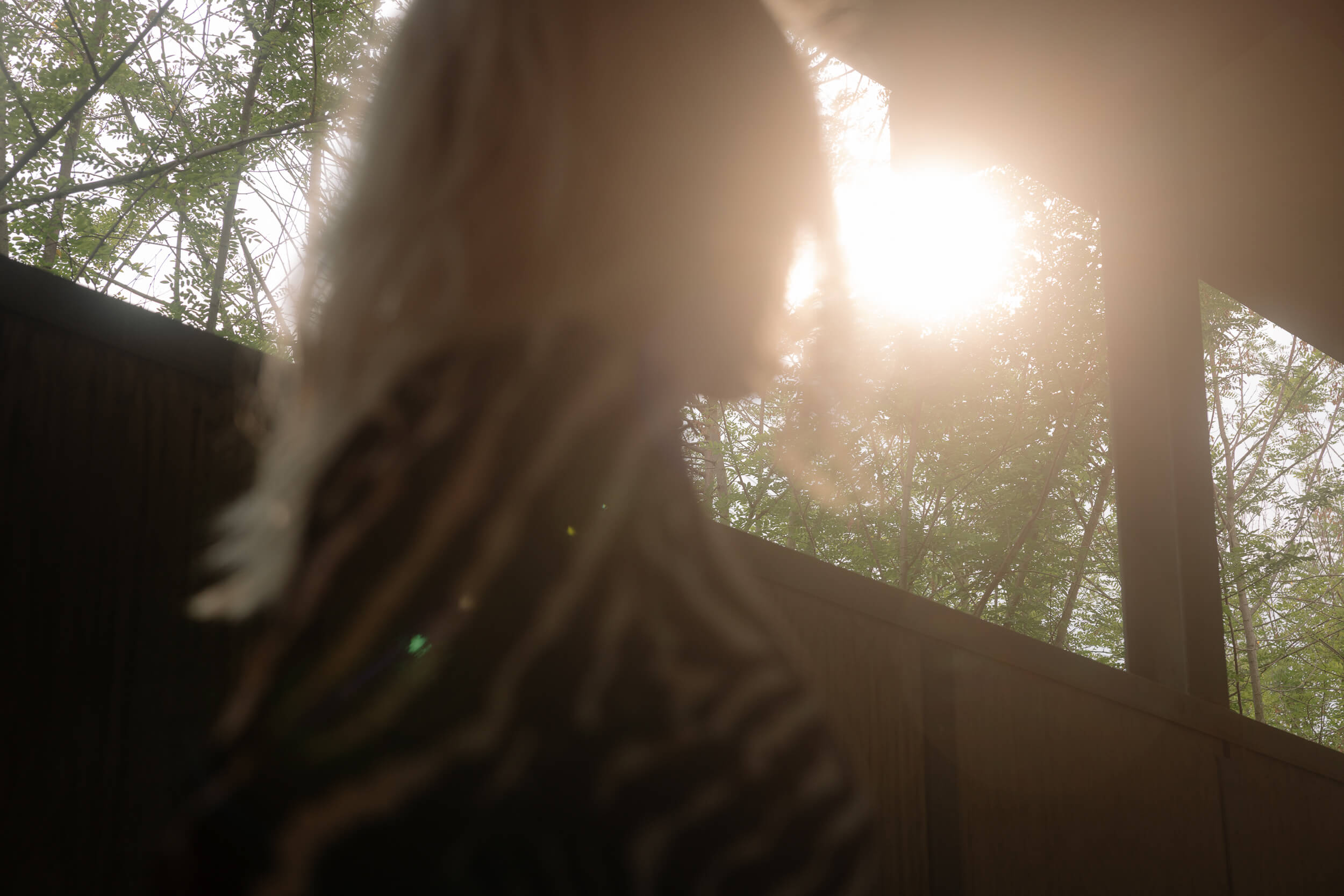
What do you hope audiences take away from Demerzel’s story within the larger narrative of “Foundation”?
I honestly don’t feel it’s my place to say what people should take away. Especially with this story, there are so many directions you can go, so many questions you might carry with you. The joy of art is that you’re free to just experience it, and something different will resonate depending on your own life, what you’ve read or seen recently, or what you’re interested in.
I’ve heard very different reactions from different people – what touches them, what they find compelling – and I love that. I don’t want to guide or limit anyone’s interpretation.
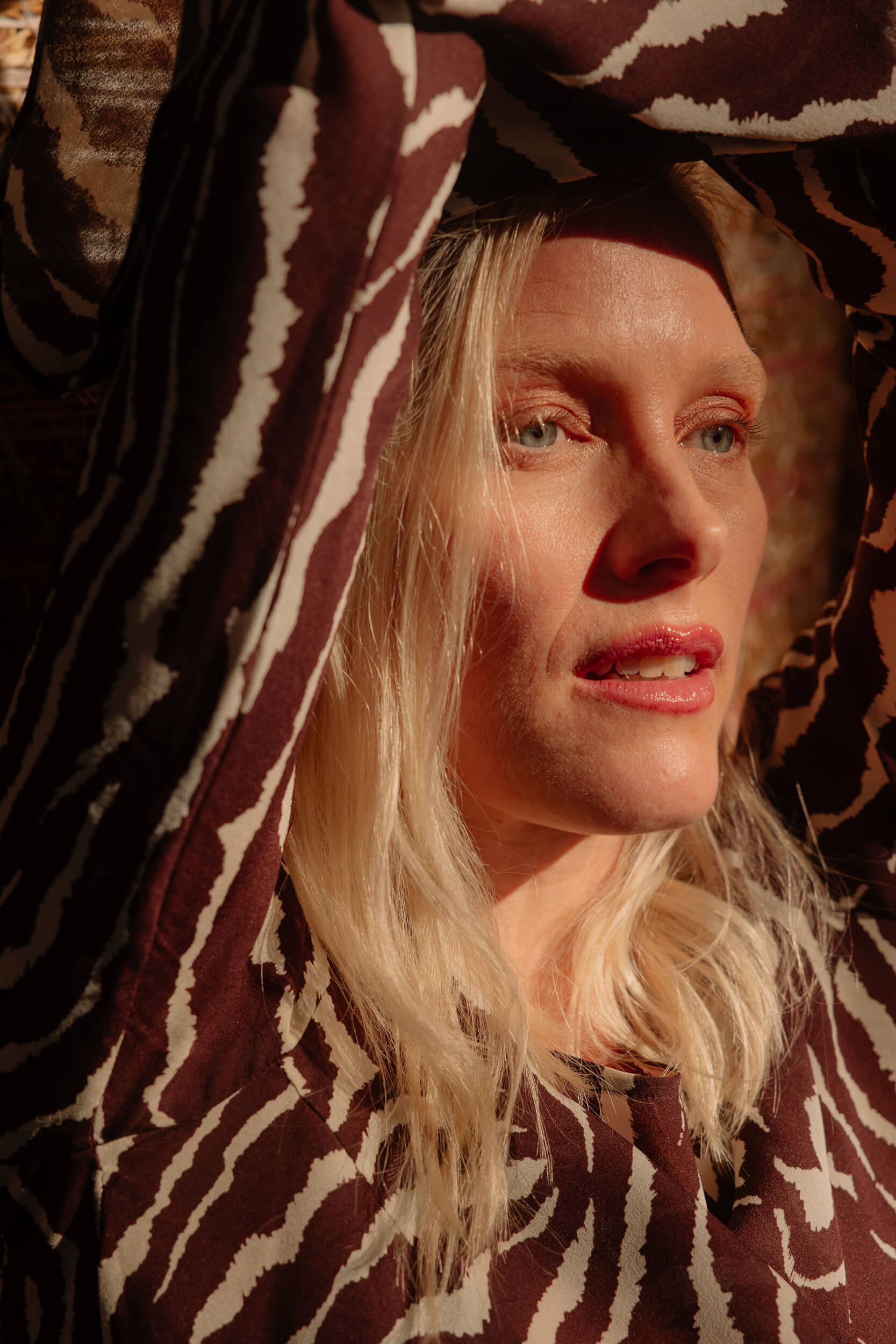
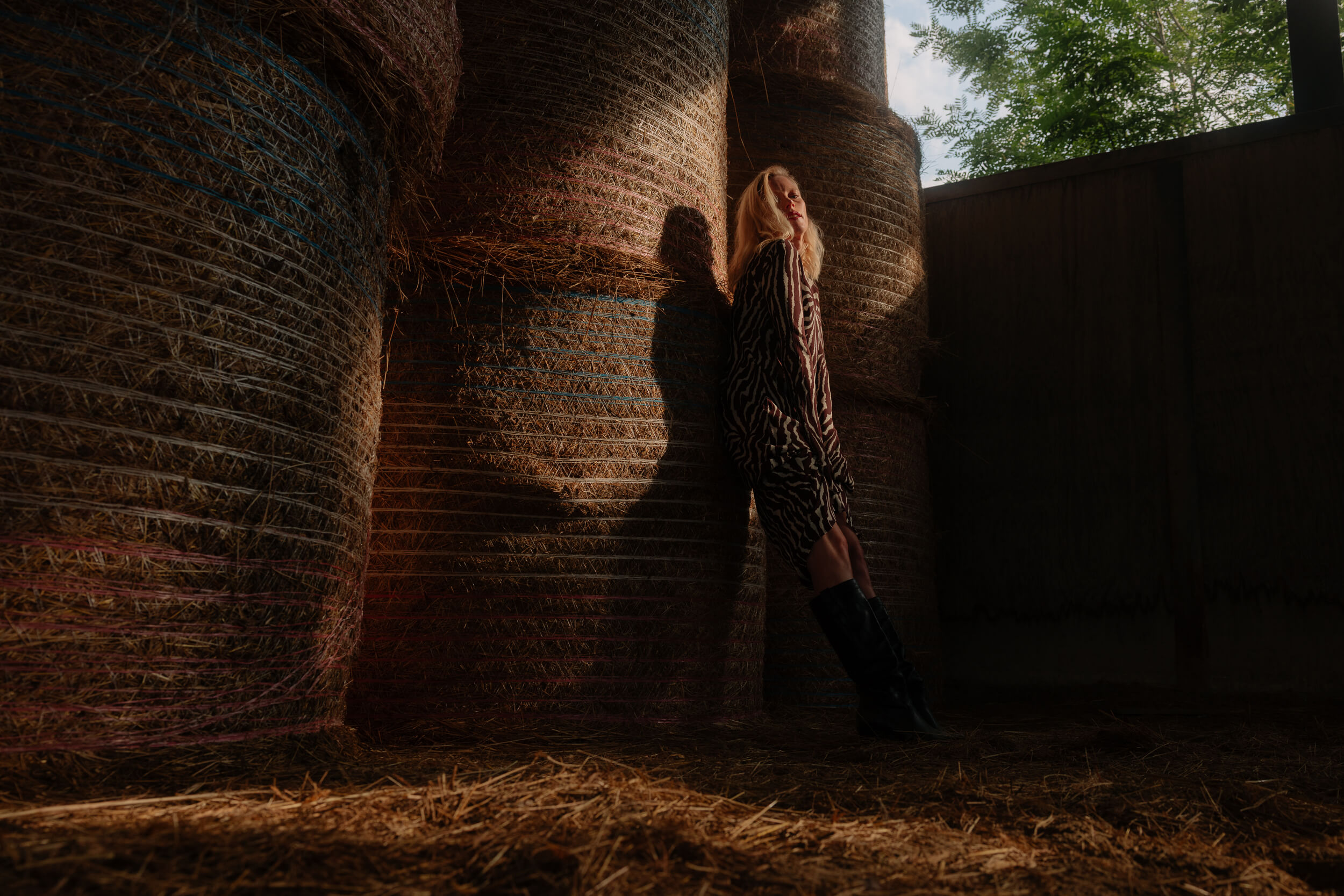
When choosing a project, what matters most to you – the story, the director, or the role itself?
All of those can be reasons. If the script is really good, it’s easy to jump in. There are also directors I’d work with no matter what, just because I find their work fascinating. And then there’s the “danger zone” – when something scares me. That’s very appealing. Early in my career, I started getting offered many similar roles. At first, I was thrilled, but after a while I felt bored of myself, like I didn’t know how to make it different anymore.
So, when a part comes along that I have no idea how to approach, that feels impossible – that’s what draws me. Something new, something I haven’t tried, something I don’t yet have answers for. It’s like an adventure: you read the script and think, “This is great, but how will I survive this?”. That feeling excites me.
But honestly, a lot of it is intuition. Sometimes I just get a feeling, and I jump.
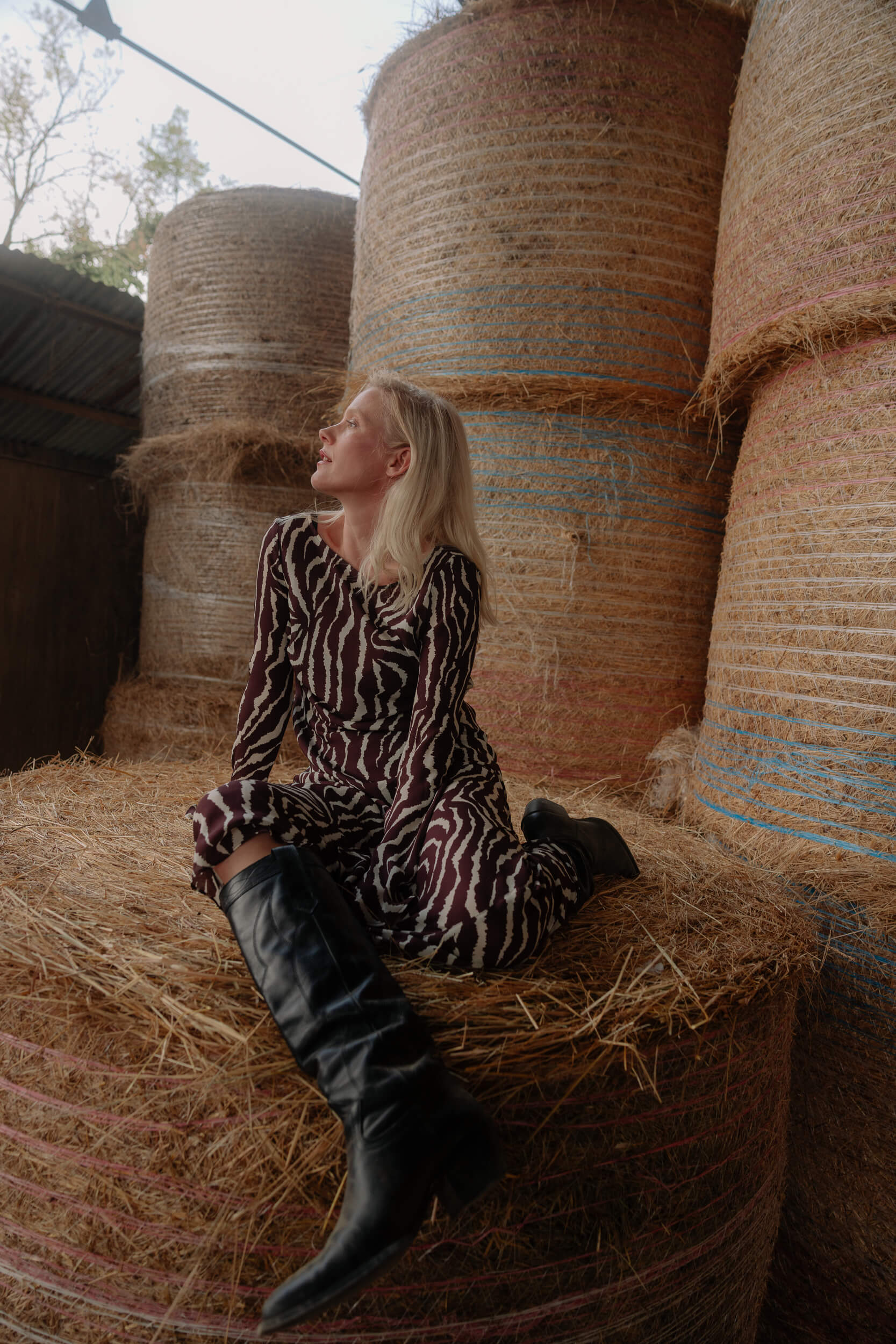
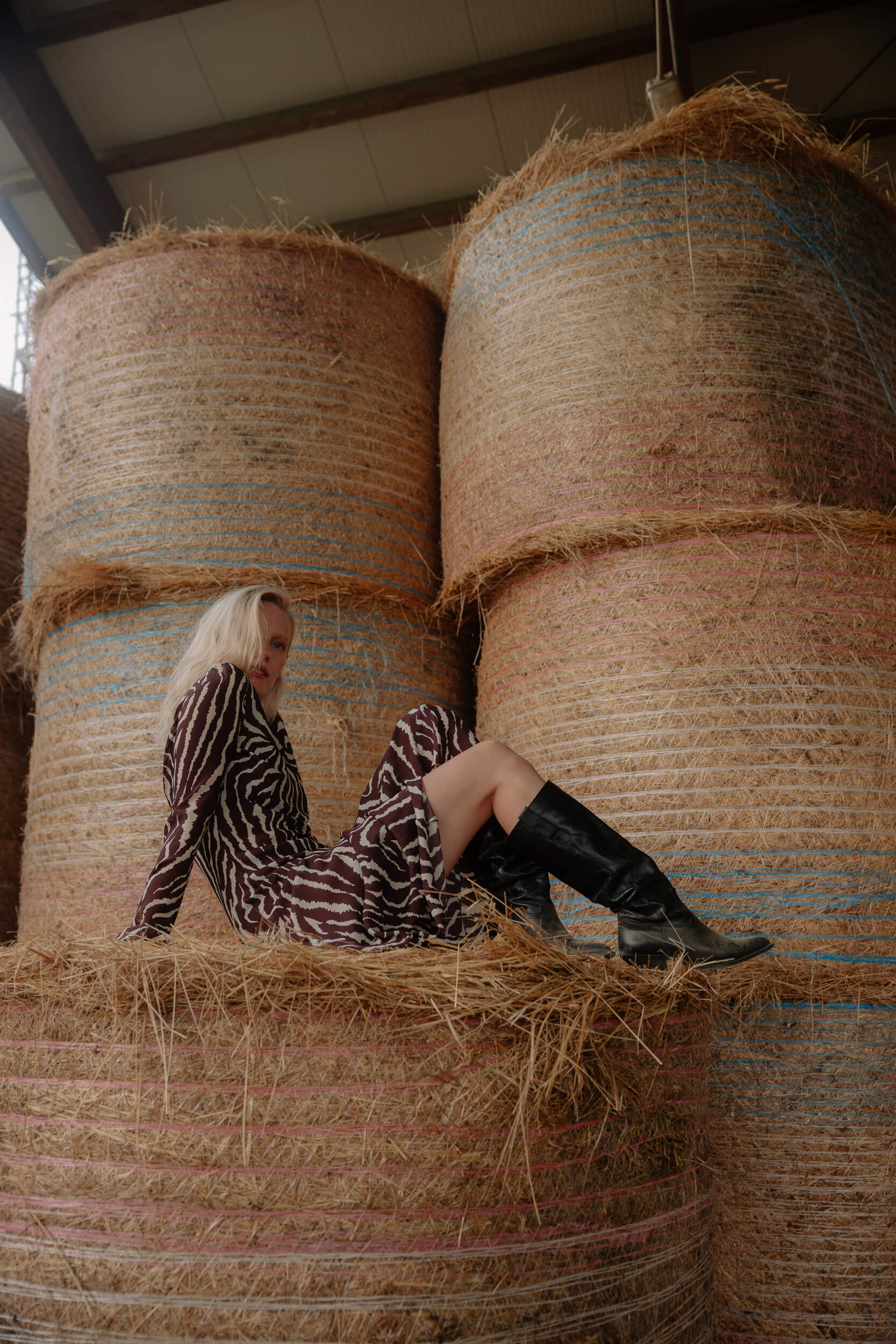
What’s your must-have on set – something you need with you?
I don’t really have one. Once a friend gave me a little stone that felt special, and I carried it for a while. Then I lost it and panicked, thinking I’d lost everything. That experience taught me not to get too attached to any object.
I’ve worked on tiny indie films and on “Foundation”, with its huge scale, and I love how every project forces me to adapt, to find new energy with new people. I change a little each time, and I love that. So, I don’t have rigid rituals or must-haves – it’s nicer to stay flexible and let each project shape me differently.
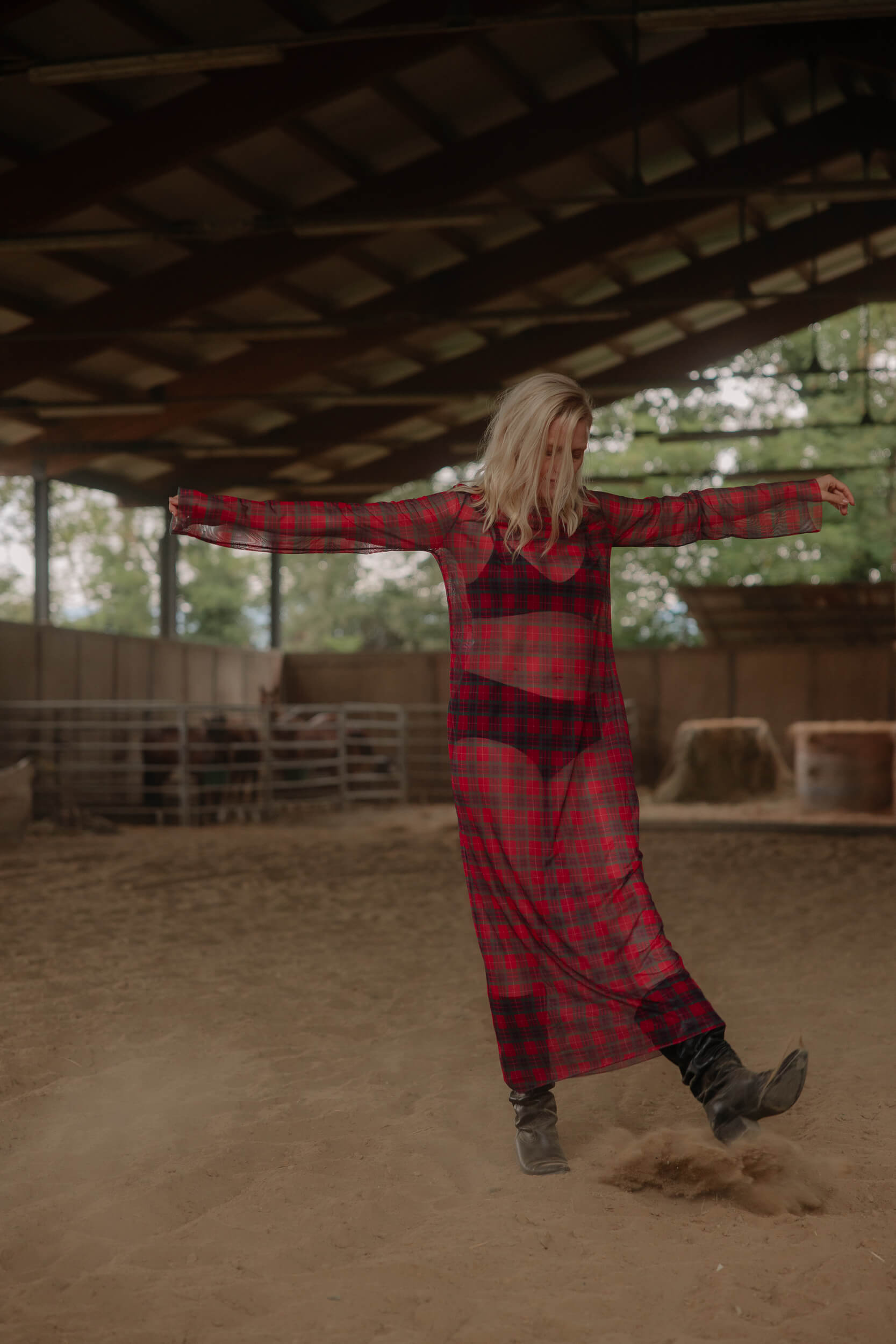
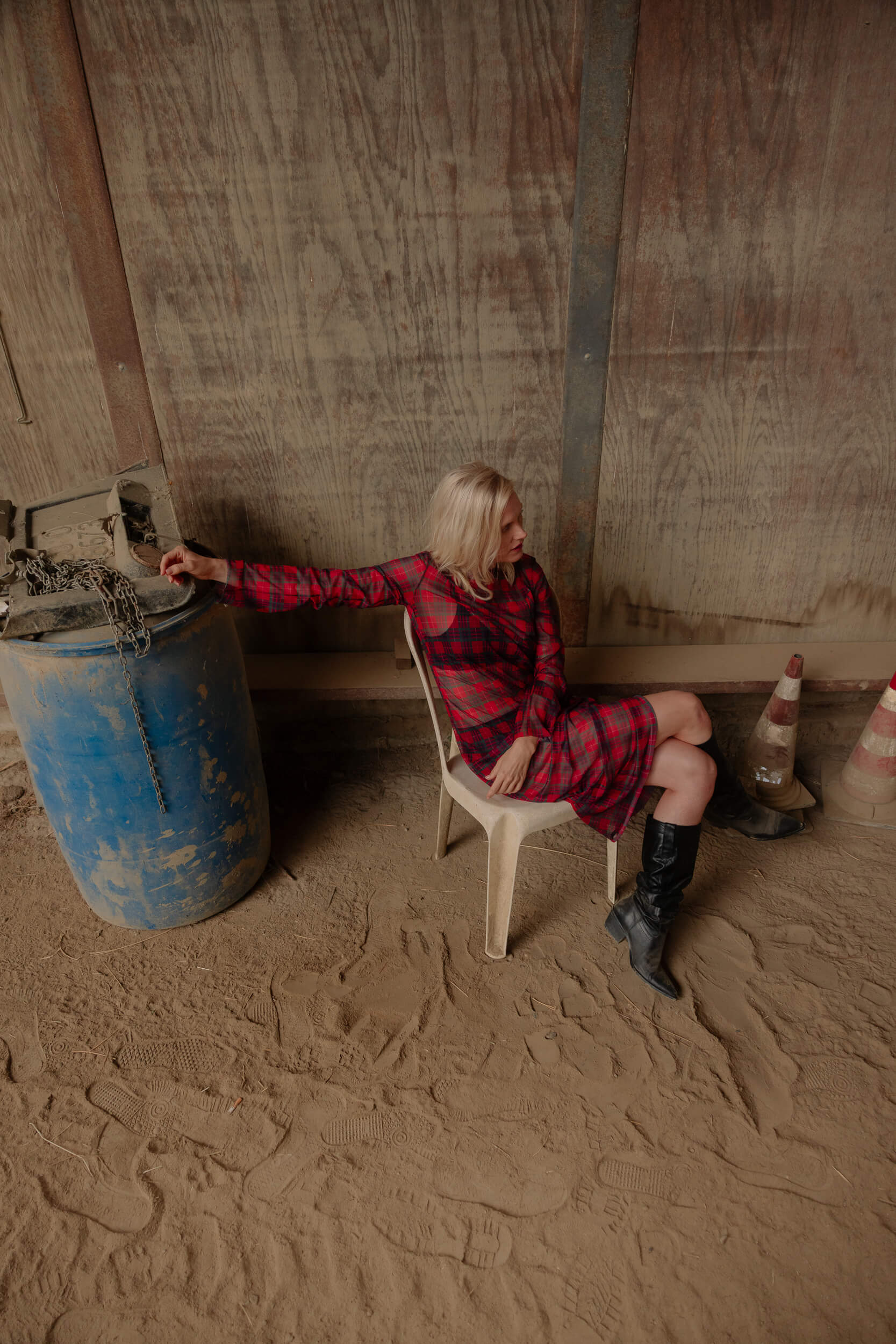
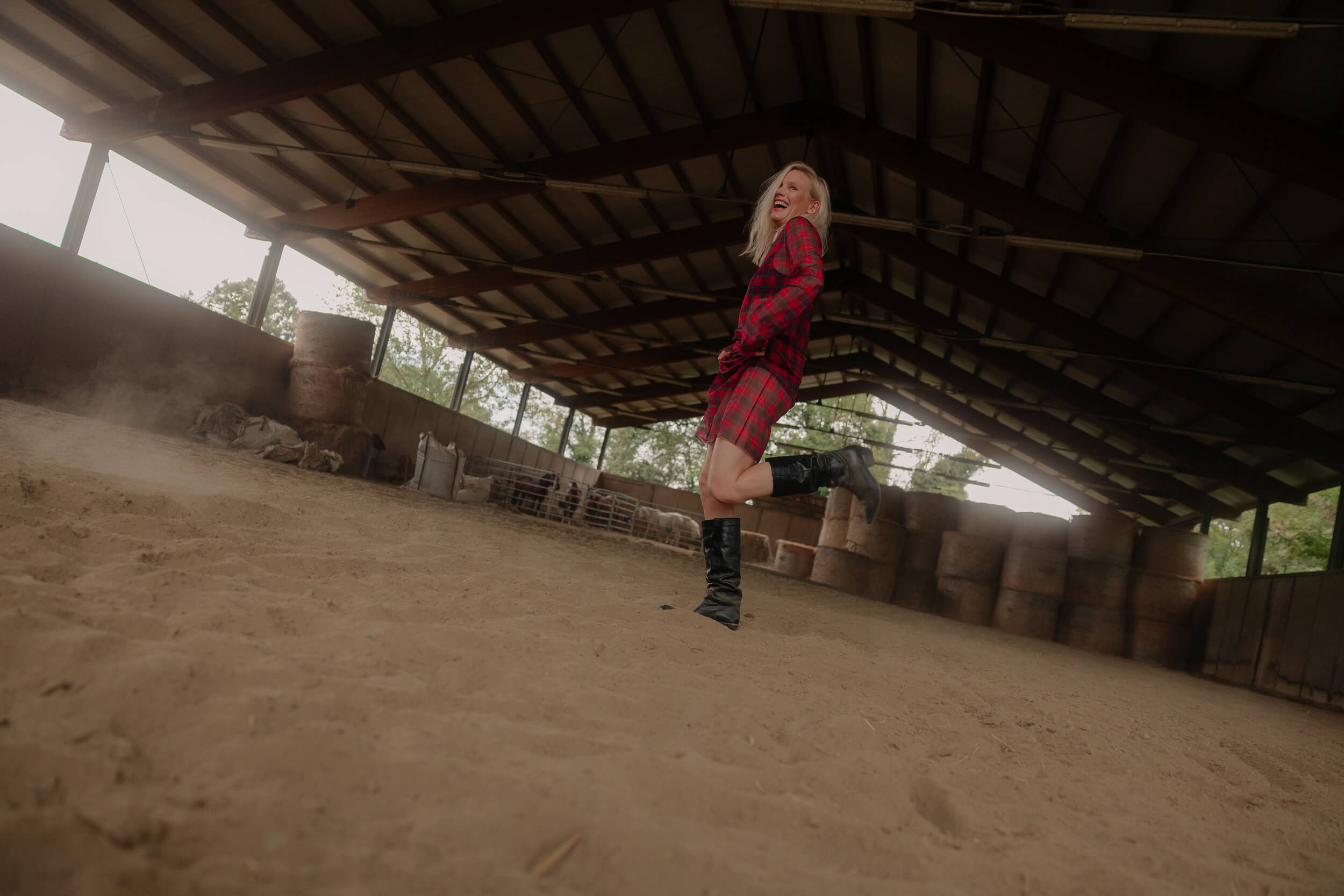
What’s the last TV show or film you watched that really stayed with you?
I just watched a Danish film called “The Second Victim”, a hospital drama. It was so powerful I had to pause it several times because I was crying too much. The Danes are so good at creating intense moral dramas that ask, “What is the right thing to do?”. It was overwhelming but deeply moving.
I also recently saw a Finnish debut film that felt so fresh and authentic, like the director’s own voice shining through. That always inspires me. Finnish cinema is in a fragile moment right now, with cultural funding being cut, but there’s so much creativity and urgency –filmmakers with stories they need to tell. The film is called “Valo joka ei koskaan sammu” (roughly, “The Light That Never Goes Out”). It was screened at Cannes last spring in a debut category. The director is Lauri-Matti Parppei. I found it really moving and full of promise.
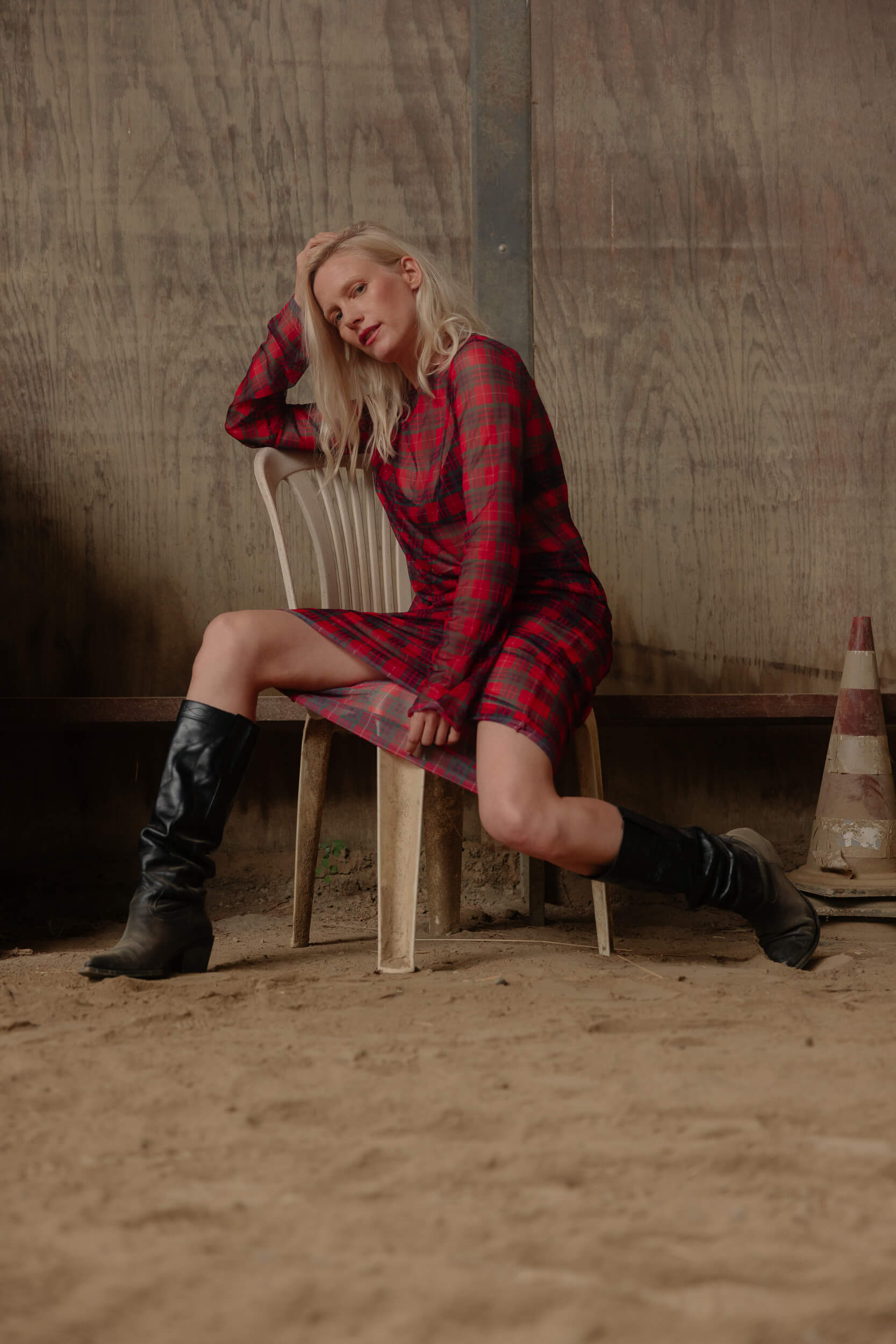
Do you have any rituals or habits that help you get into a creative mode?
Yes, though it varies. For me, the sauna is often that space. I’m Finnish, so it’s a big part of my life. The heat clears my mind, shuts off the conscious noise, and suddenly ideas just come. That’s the thing about creativity – it’s hard to force. You can feed it by reading, watching, observing, but it doesn’t always show itself on command. Sometimes it arrives when you stop trying.
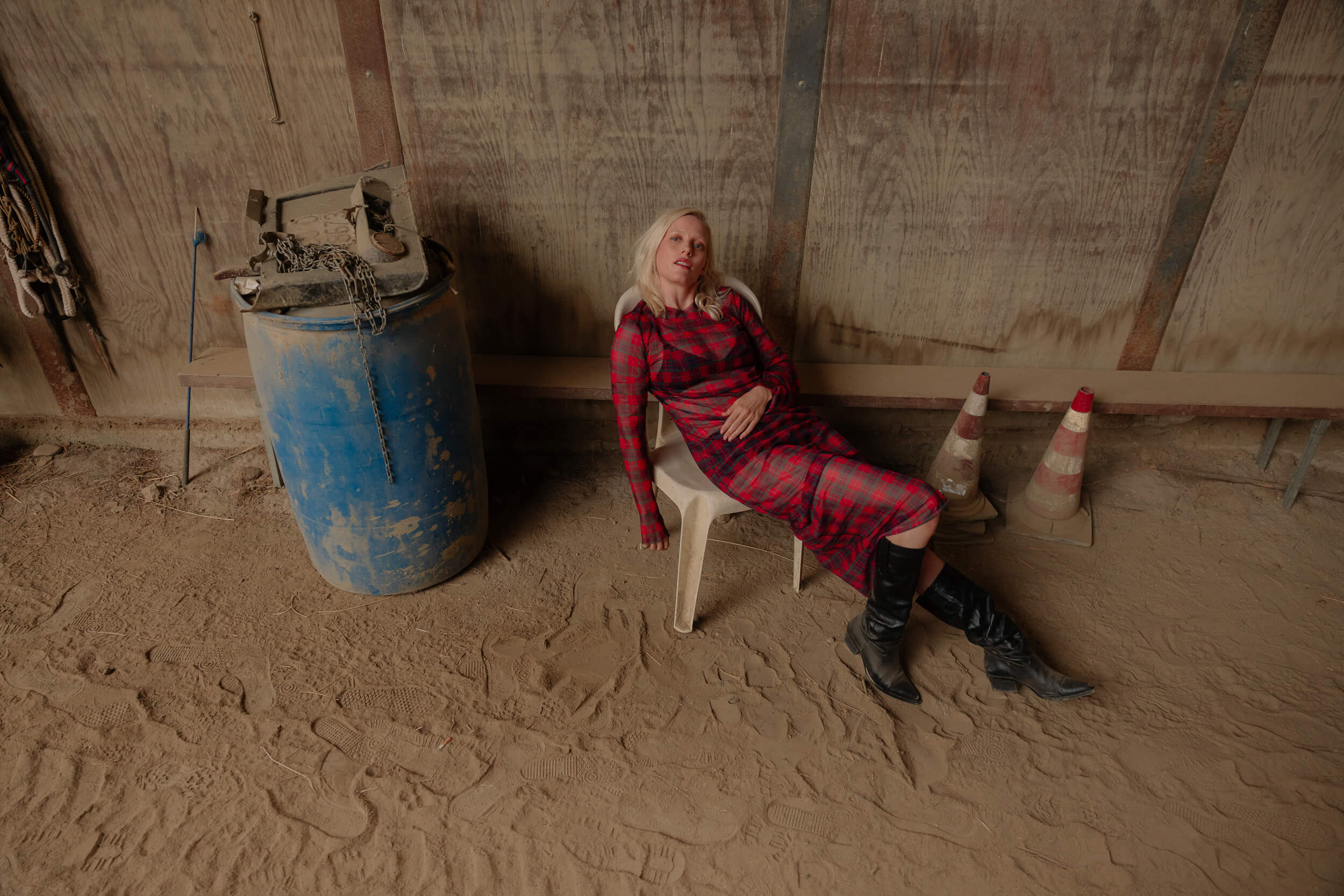
“That’s the thing about creativity – it’s hard to force.”
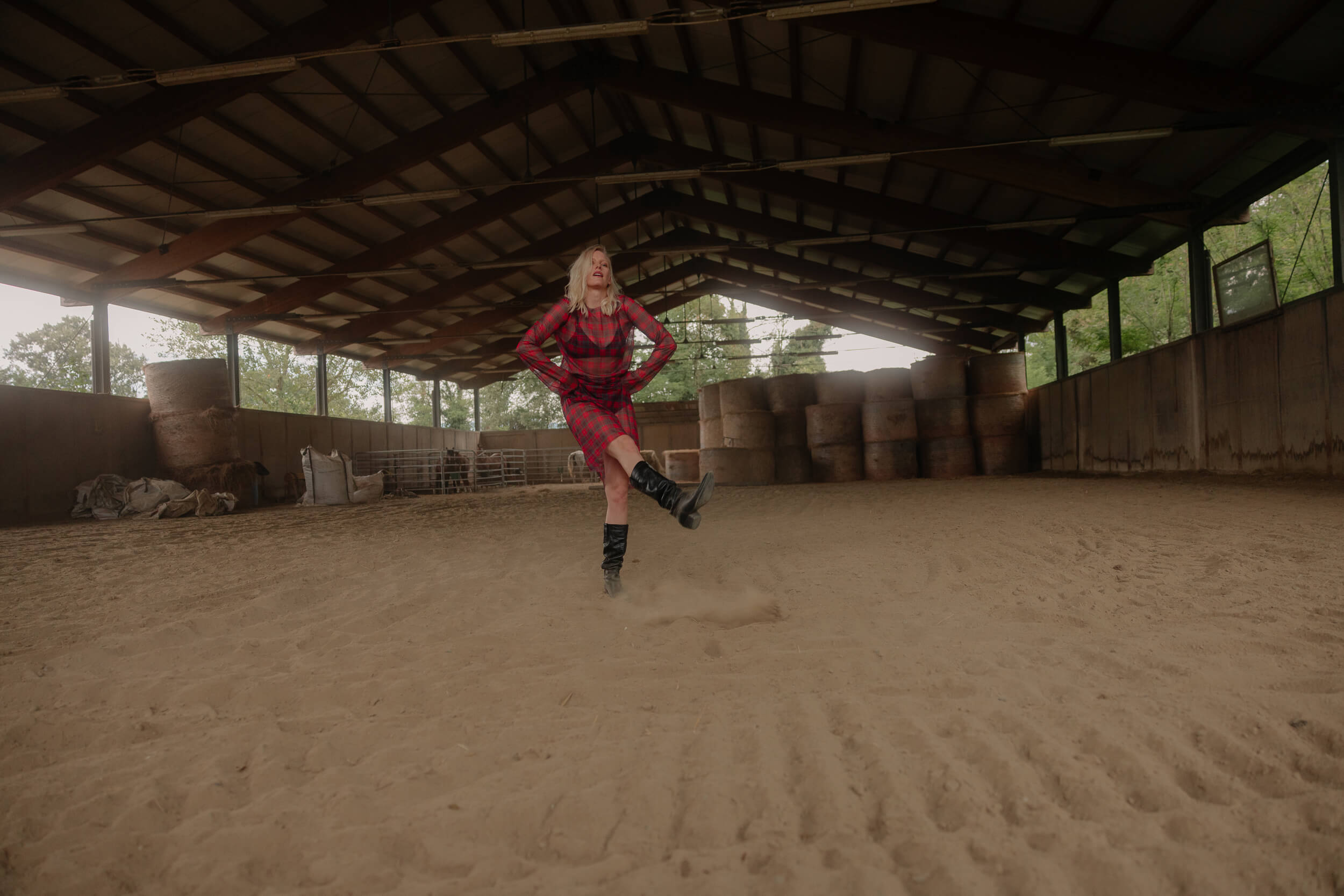
Acting, in my view, often confronts you with unexplored aspects of being human and, consequently, helps you understand yourself better. What is the last thing you discovered about yourself through your work?
What I think about acting is that the more interesting it gets, when you go to those places that feel more awkward, shameful uncomfortable, the stronger and alive you become. It’s okay to know myself, and to accept my “weaknesses” or sadness makes me more powerful. I think that sometimes, sharing the most horrible, shameful things that you think make you the only person who can be so bad, you suddenly understand that perhaps there are other people who feel the same, ant that’s very liberating.
We all struggle with difficult thoughts and it’s somehow the acceptance of dark places within you that makes you learn more about yourself. Entering those places increases empathy towards myself, which is beautiful, and I think it’s going to be a lifelong journey to learn empathy towards myself. Because it’s easy to have empathy towards your friends and family, and you never judge them for their dark thoughts and shames they share with you, on the contrary, it makes you love them more.
We all have close people with flaws because it’s not interesting to be perfect, and no one is. So, to learn to have that same empathy towards yourself it’s a never-ending process, but a beautiful one when you keep on learning.
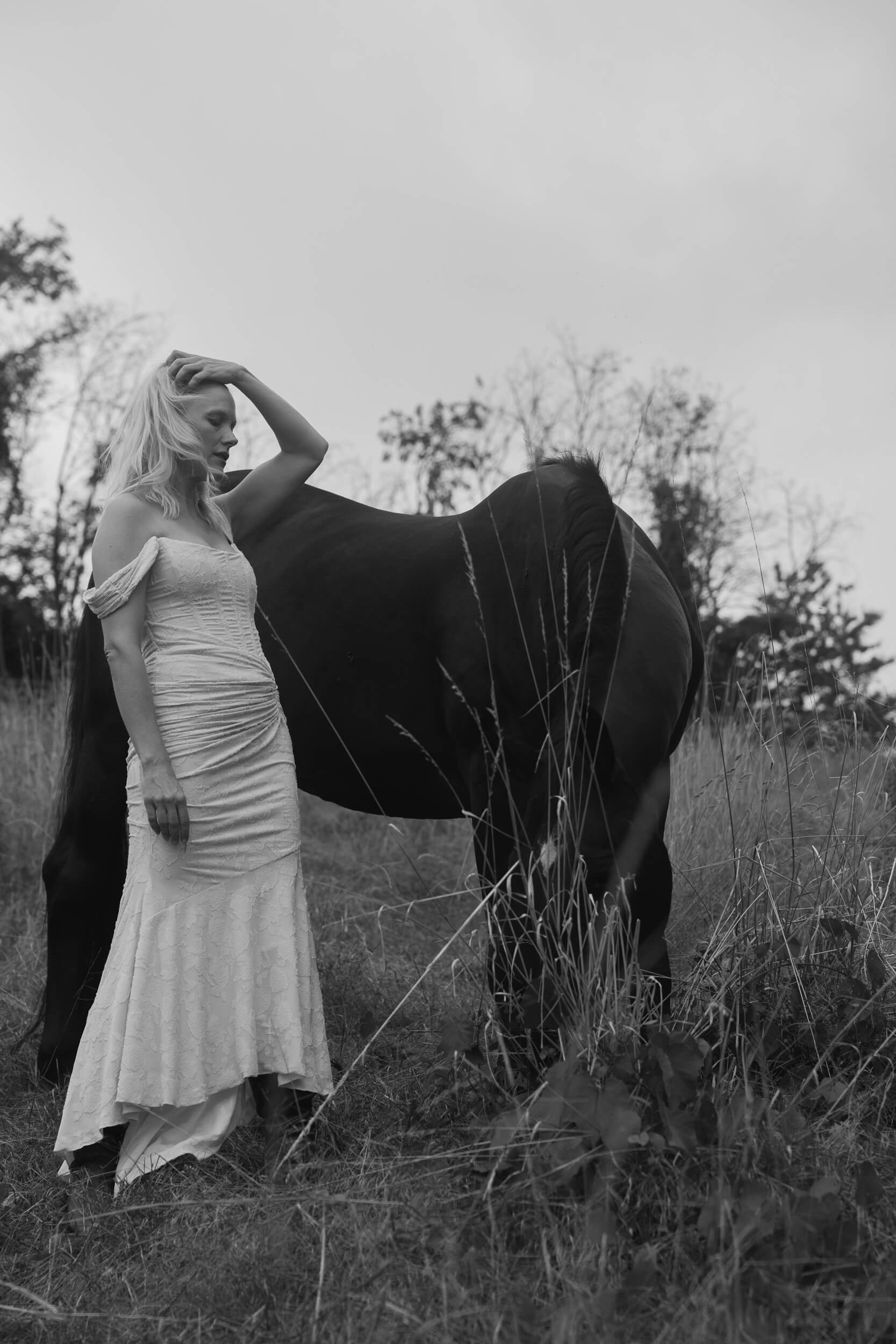
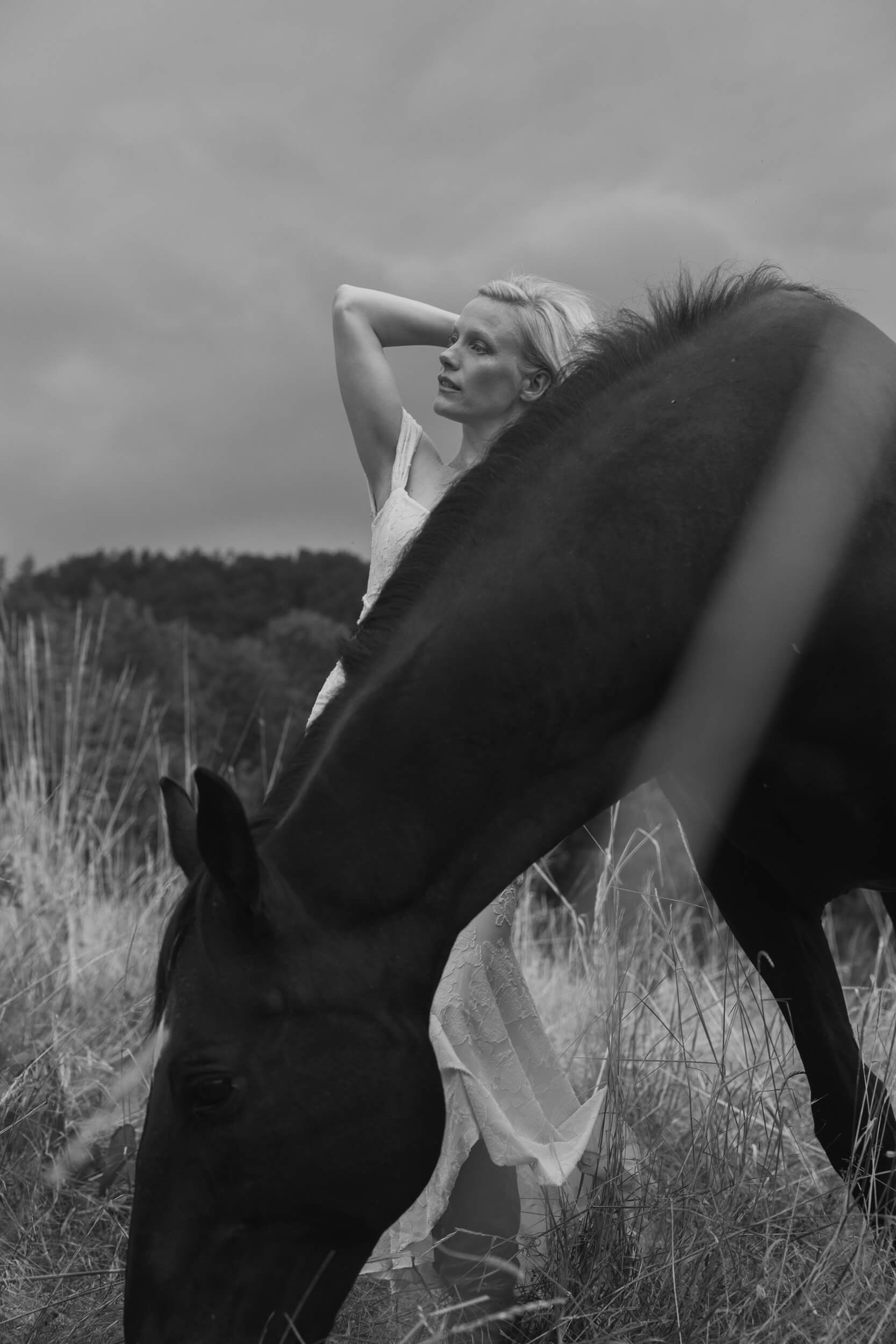
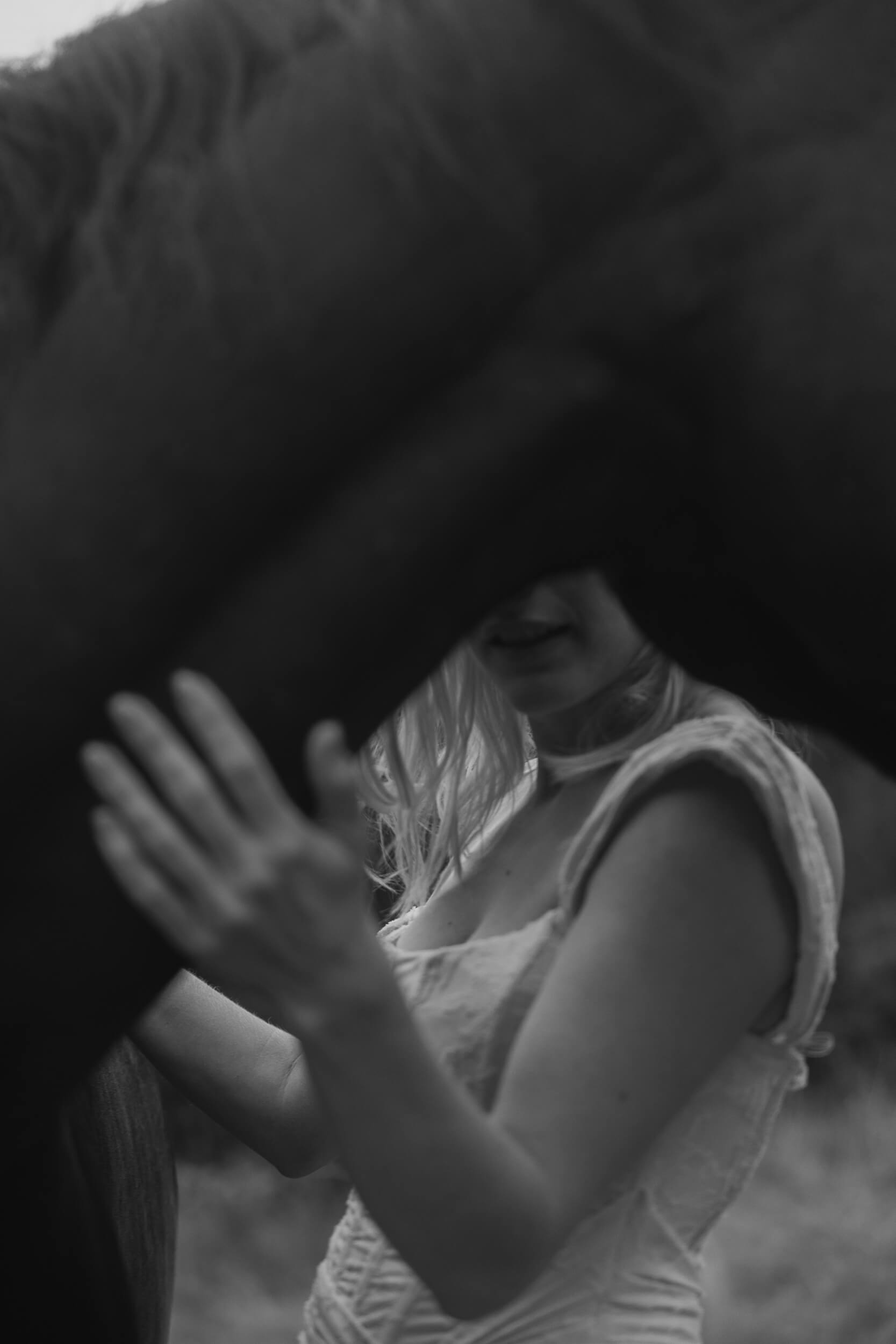
What does feeling comfortable in your own skin mean to you?
I think it means everything. Having been a young woman in the 90s and 2000s, I’m sure we weren’t comfortable in our bodies back then, and now, when I look at our pictures of when we were young, I think we were all so beautiful and perfect. The amount of criticism with which we considered ourselves because of the society who taught that to girls, makes me feel sorry for us who had to waste all that time criticizing our body or whatever. However, I feel happy that the world now has changed a bit. When I watch my friends and myself getting older, I think we’re just getting better and more accepting and comfortable in our skin, and that’s a joy. Also, I think this must be very challenging for the new generations because of social media, I think they struggle like crazy, but for me, the older I get, the more I start to enjoy my body, how strong it can feel, which also gives me mental strength. Actually, I think my body strength is more important to me than getting fit only to please somebody, because it’s that strength that gives me comfort.
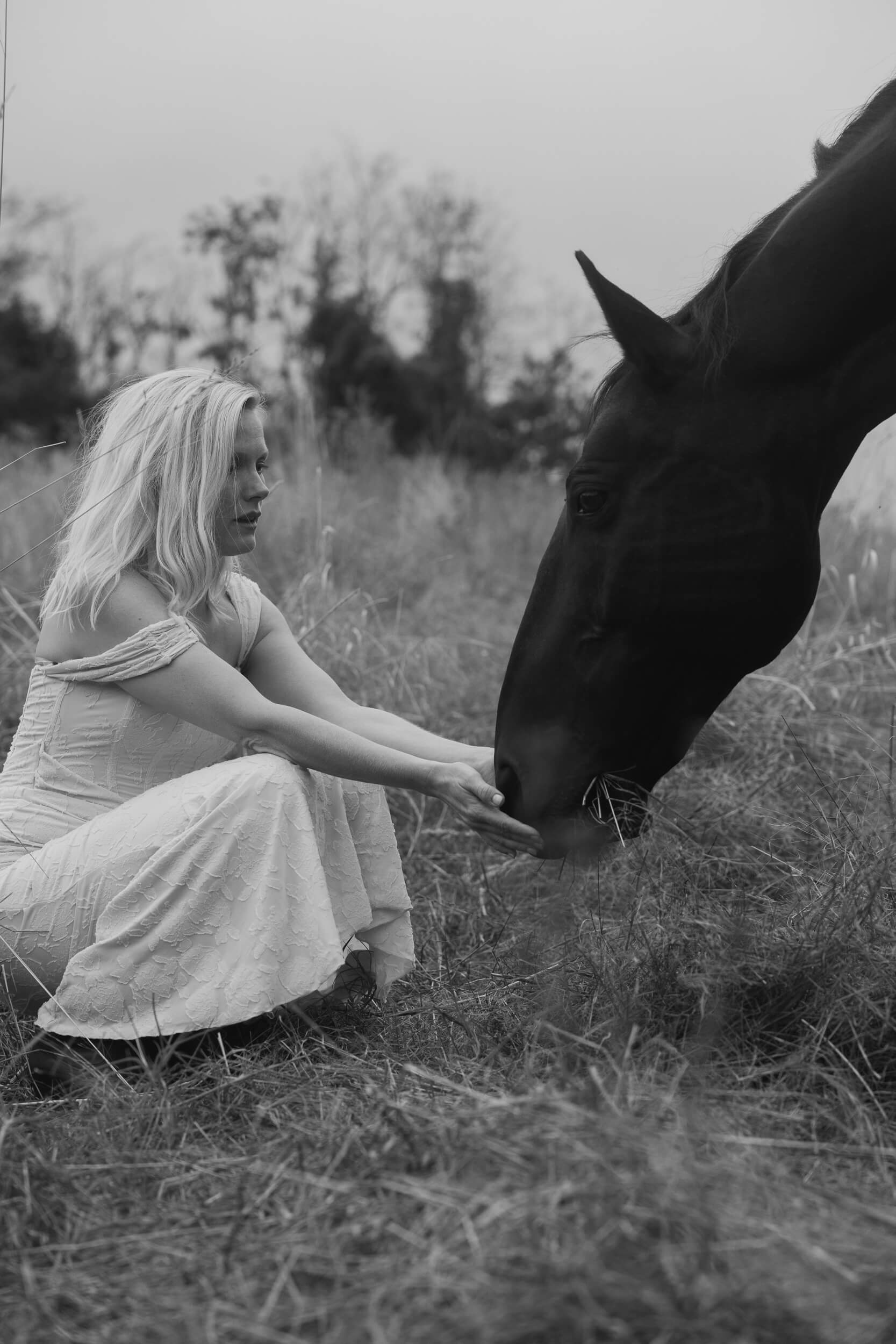
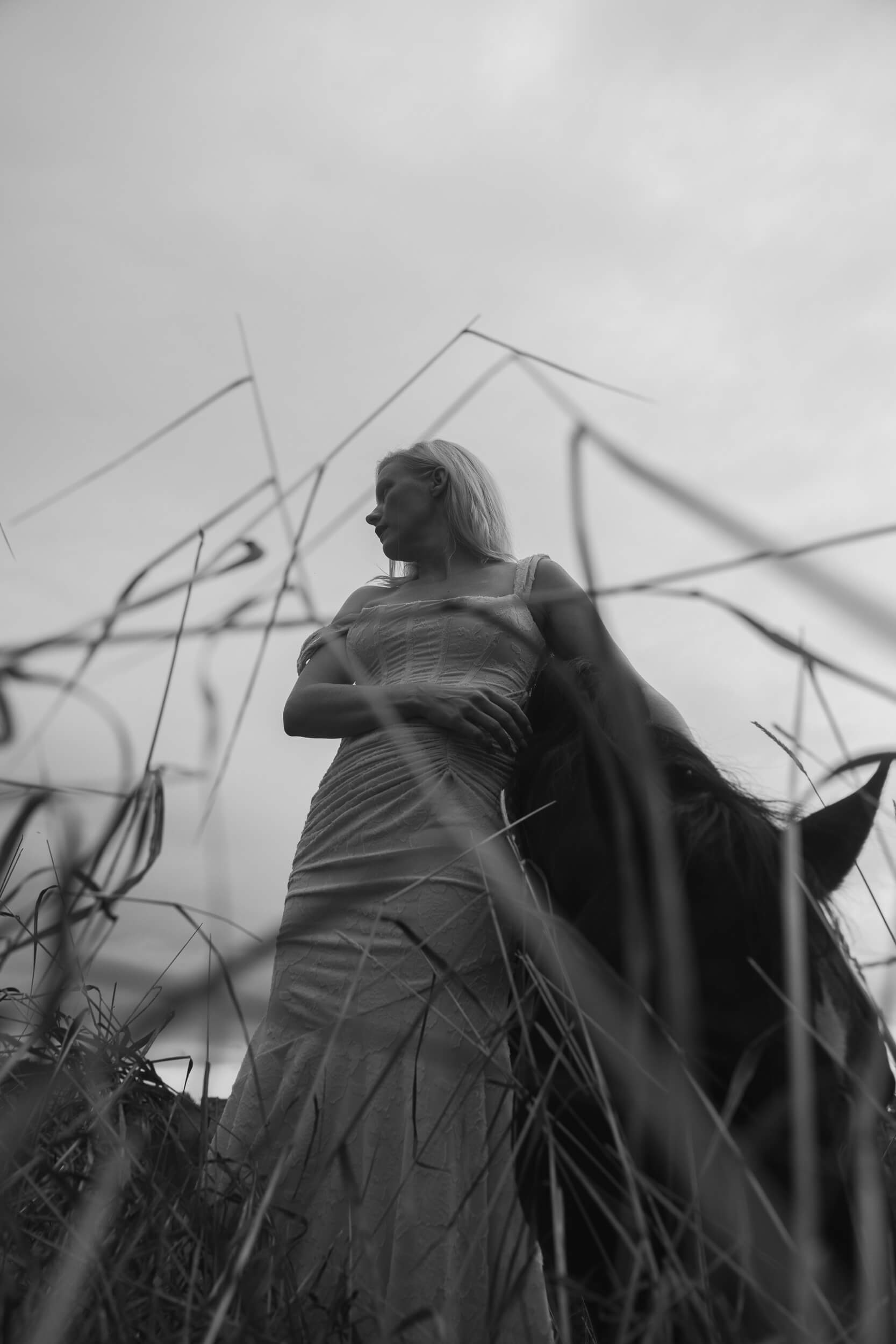
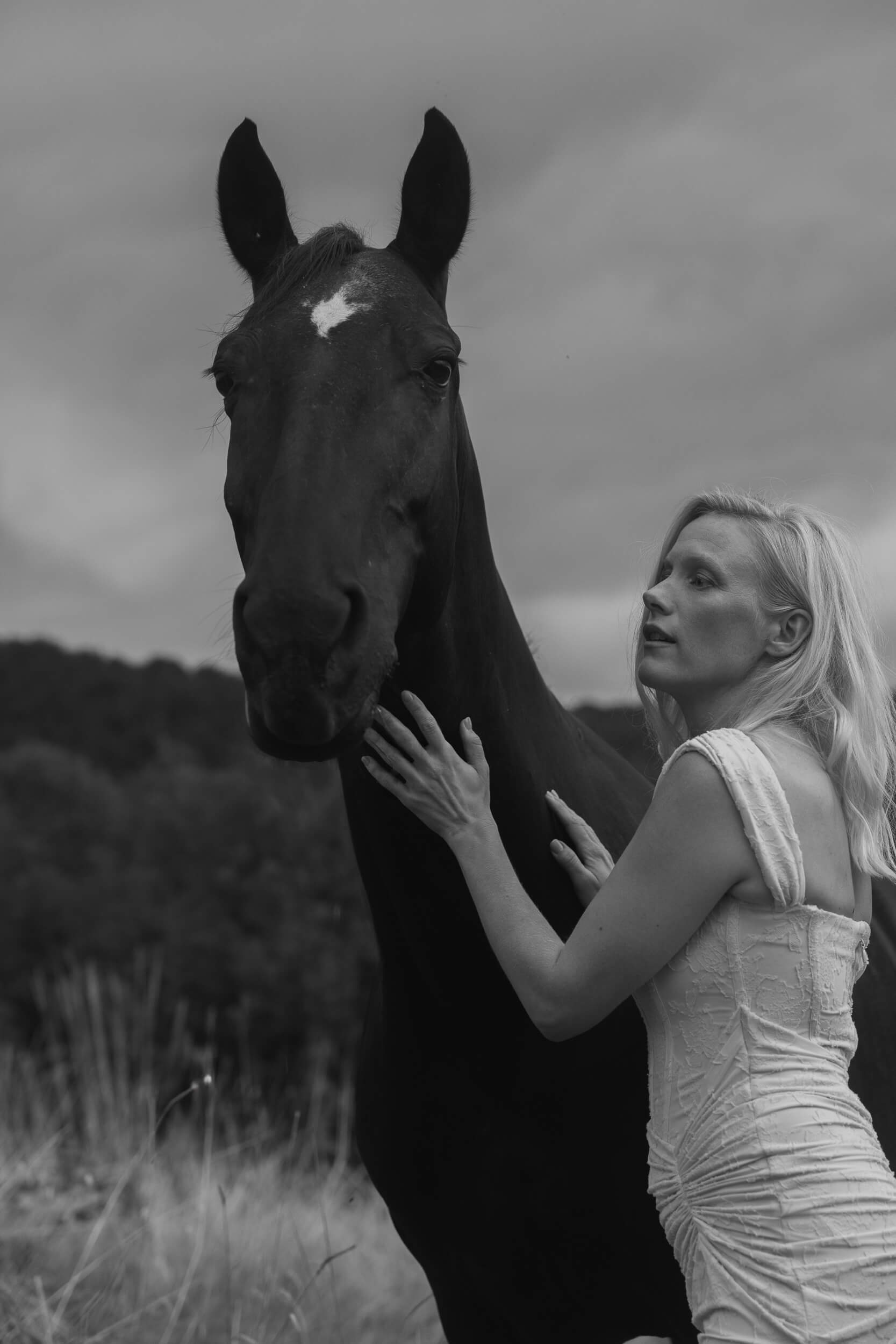
“The older I get, the more I start to enjoy my body, how strong it can feel, which also gives me mental strength.”
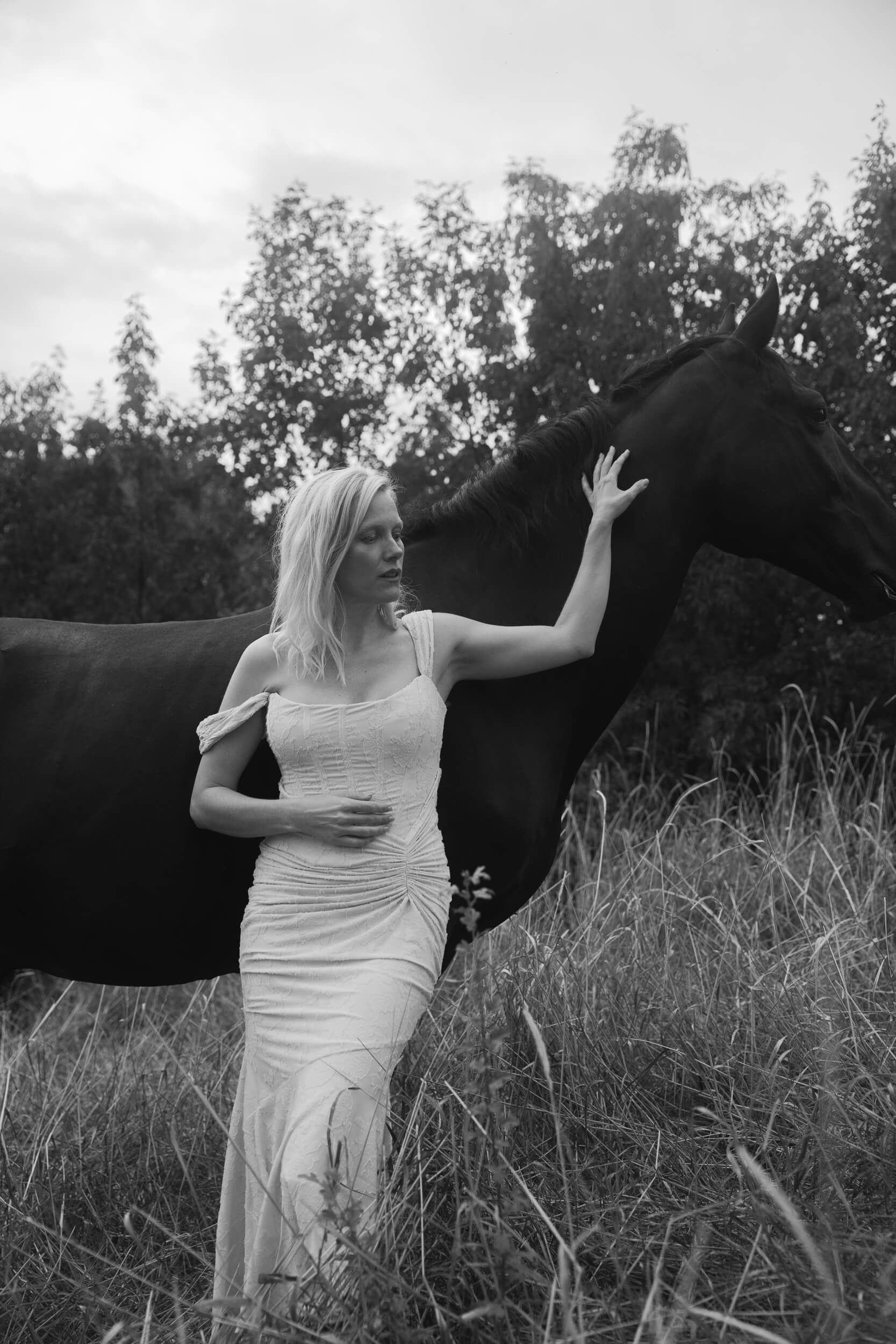
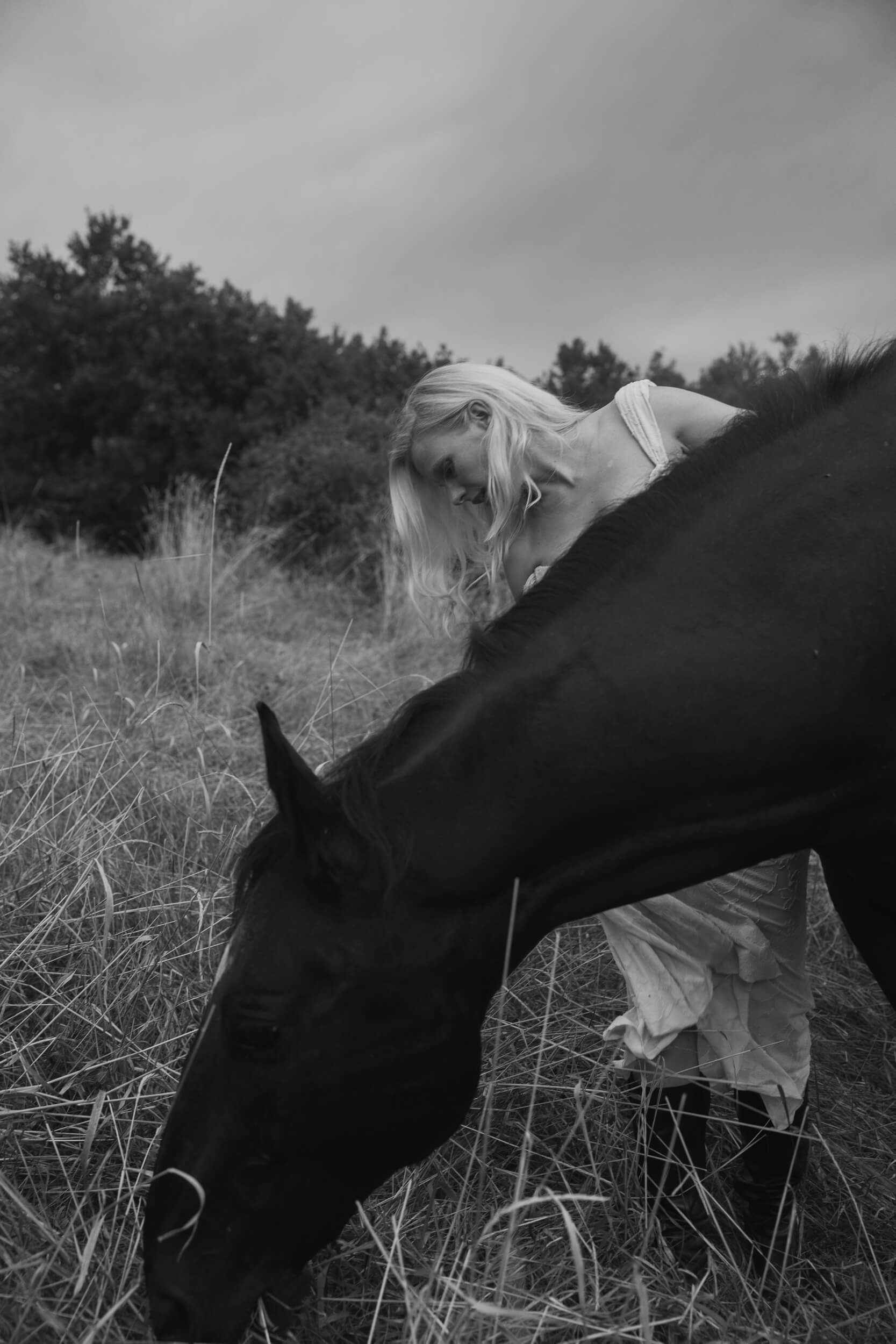
What is your happy place?
My happy place are my people.
Also, I love water, I love going to a little cottage by the sea, I love autumn, I love when it’s not too sunny but a little bit stormy, and it rains and you’re in the middle of nowhere, and the sea goes wild. That’s what I’m hoping for this upcoming autumn. But it wouldn’t be my happy place if I wasn’t there with people that are important to me. I’ve never been really attached to a certain house or place, but I’ve always been very attached to people, so wherever they are, I’m happy to be with them.
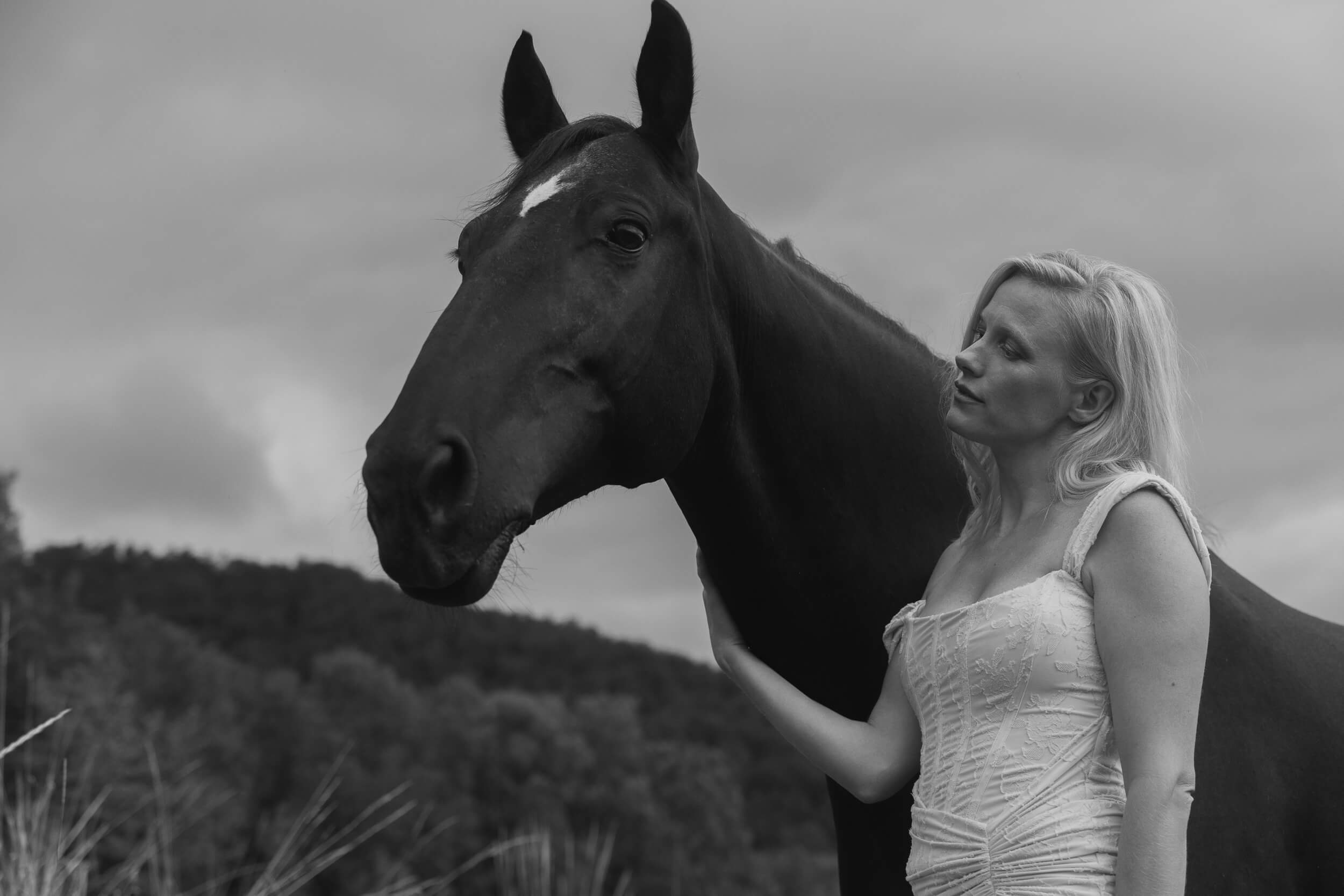
Photos and Video by Johnny Carrano.
Styling by Ilaria Di Gasparro.
Makeup and Hair by Sveva Del Campo.
Location: Cascina Gazzeri.
Thanks to Premier Comms.


